A B C D E F G H I J K L M N O P Q R S T U V W X Y Z
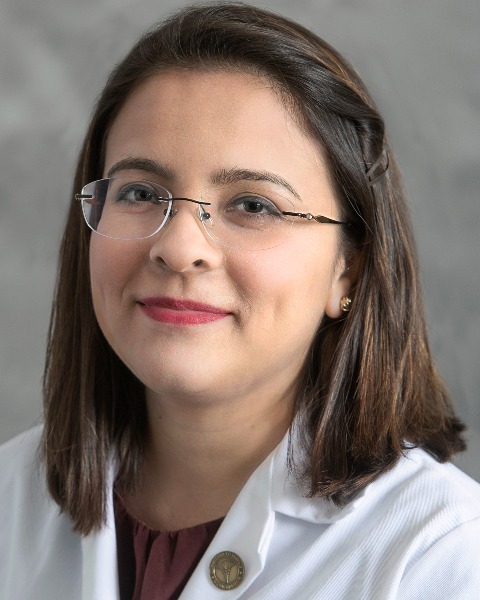
Brooj Abro, MD, is a Hematopathology Fellow at Washington University School of Medicine. She completed residency in Anatomic and Clinical Pathology at Washington University School of Medicine. After completion of Hematopathology Fellowship, Brooj will pursue fellowship training in Molecular and Genetic Pathology at Memorial Sloan Kettering Cancer Center, New York.
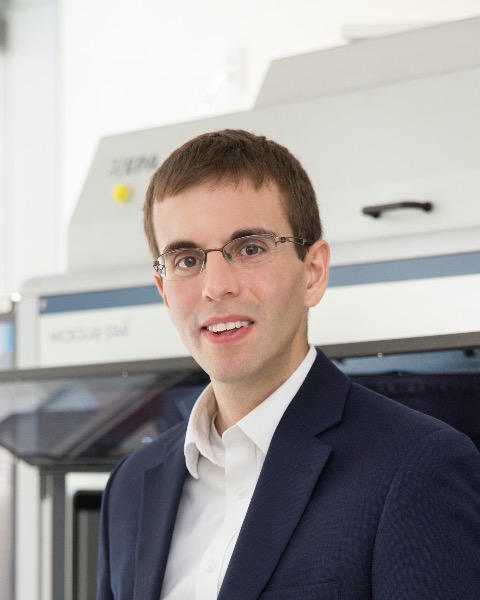
Viktor Adalsteinsson, PhD is Associate Director of the Gerstner Center for Cancer Diagnostics at the Broad Institute of MIT and Harvard. His research involves developing molecular and computational methods for cancer detection, treatment response monitoring, and comprehensive genomic analysis. He and his collaborators have analyzed 10,000 liquid biopsy samples, and in 2017, Dr. Adalsteinsson was recognized as one of MIT Technology Review’s “Innovators Under 35.” Dr. Adalsteinsson holds a PhD in Chemical Engineering from MIT.
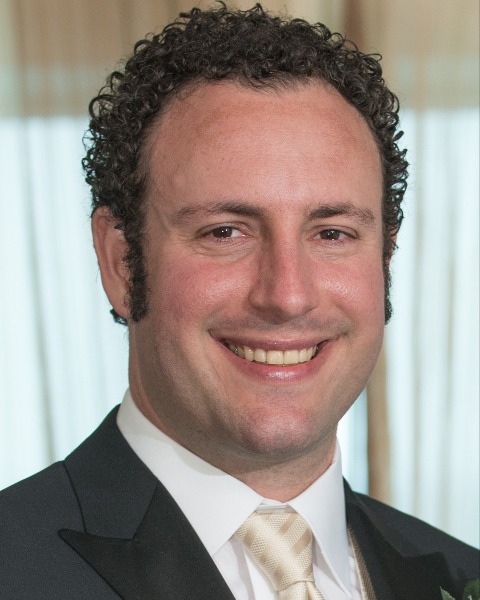
Jeremy Adler, MD, is a molecular genetic pathology fellow at the University of Chicago and Northshore University Health System. He completed his residency in anatomic and clinical pathology at Pennsylvania Hospital of University of Pennsylvania Hospital System. He studied Applied Math and Biology at Brown University and received his medical degree from Stony Brook University. His academic interests include molecular pathology, computational biology, as well as bone and soft tissue pathology.
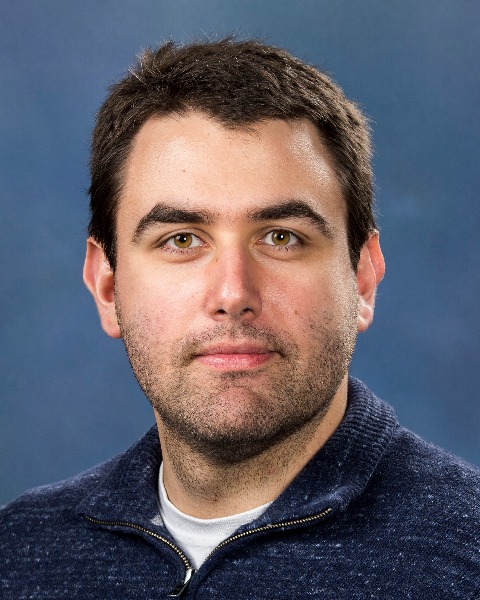
Ludmil Alexandrov, PhD is an Assistant Professor in the Department of Cellular and Molecular Medicine as well as the Department of Bioengineering at University of California San Diego. He earned his Bachelor of Science degree in Computer Science from Neumont University and received his Master’s of Philosophy in Computational Biology as well as his Ph.D. in Cancer Genetics from the University of Cambridge. Ludmil’s research has been focused on understanding the mutational processes in cancer. In 2013, he developed the first comprehensive map of the mutational signatures in human cancer. More recently, Ludmil mapped the signatures of clock-like mutational processes operative in normal somatic cells, demonstrated that mutational signatures have the potential to be used for targeted cancer therapy, and identified the mutational signatures associated with tobacco smoking. Ludmil has 100 publications in peer-reviewed journals from which 22 publications in Nature, Science, or Cell and another 34 publications in Nature Genetics, Nature Medicine, Cancer Cell, Science Translational Medicine, PNAS, or Nature Communications. He has received a number of awards for his work on mutational signatures, including: “30 brightest stars under the age of 30” by Forbes magazine, Prize for Young Scientists in Genomics and Proteomics by Science magazine and SciLifeLab, Harold M. Weintraub Award by the Fred Hutchinson Cancer Center, Carcinogenesis Young Investigator Award by Oxford University Press, Balfour Prize Lecture of the Genetics Society, Early Career Award by The International Academy for Medical and Biological Engineering, and Outstanding New Environmental Scientist (ONES) Award by National Institute of Environmental Health Sciences. Ludmil is currently one of six co-investigators leading the Mutographs of Cancer project, a $25 million Cancer Grand Challenge initiative to identify the unknown cancer-causing factors.
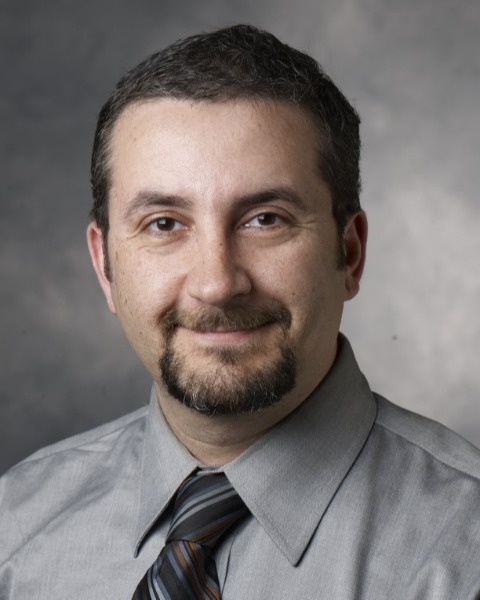
Ash Alizadeh, MD, PhD leads the Cancer Genomics program for the Stanford Cancer Institute, and serves on the NIH Cancer Genetics Study Section. He has a history of research and accomplishments in cancer genomics, beginning with the original development of microarray gene expression profiling for cancer classification starting with lymphomas and cell-of-origin, and advancing to multiple tumor types. Dr. Alizadeh helped develop techniques for ultra-sensitive and non-invasive detection of tumor-derived cell-free DNA (CAPP-Seq) [1-3], and for computational deconvolution of gene expression data for deciphering cellular heterogeneity in tumors including immune infiltration (CIBERSORT/x). His group's translational research effort is focused on attaining a more sophisticated understanding of the initiation, maintenance, and progression of tumors and their response to therapy toward improving current treatment strategies. He has a significant record of training and mentoring of PhD students and postdoctoral fellows, and promoting an inclusive, safe and supportive research environment. It has always been his standard that trainees are taught to conduct their research in a responsible and ethically sound manner. Furthermore, Dr. Alizadeh holds himself to the same standards; maintaining a record of, and providing training in rigorous and unbiased experimental design, methodology, analysis, interpretation, and reporting of results.
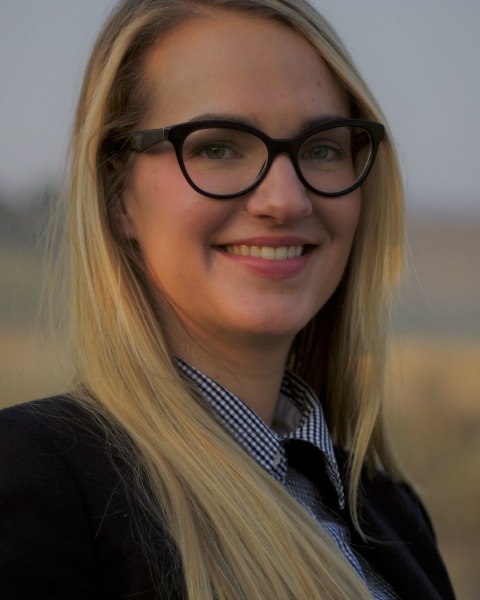
Blaire Anderson is a second year medical student at the Geisel School of Medicine at Dartmouth College in Hanover, NH and the 2021 I. William Grossman Student Fellow in the Department of Pathology and Laboratory Medicine at Dartmouth-Hitchcock Medical Center in Lebanon, NH. She earned her undergraduate degree in microbiology from Boise State University in Boise, ID.
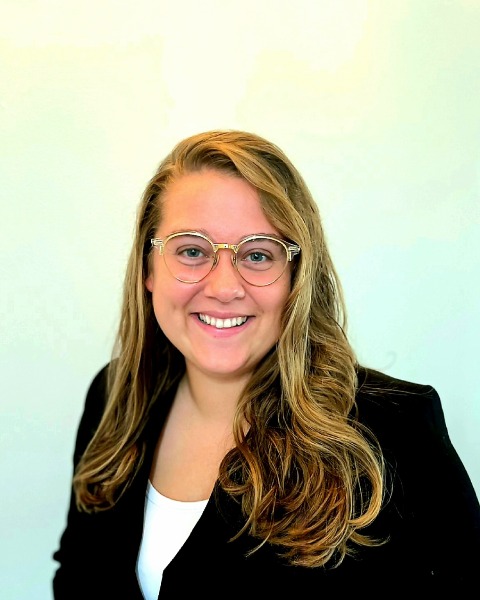
Taylor Ashworth, MLS(ASCP) received a Bachelor of Science – Clinical Laboratory Science degree from the University of Wisconsin – La Crosse and completed her internship at the Mayo Clinic School of Health Sciences. Ms. Ashworth is a board-certified medical laboratory scientist. She currently serves as a Developer in the Department of Laboratory Medicine and Pathology at Mayo Clinic Rochester.

Gabriel Bien-Willner, MD, PhD is the Medical Director of the MolDX program at Palmetto GBA, a Medicare Administrative Contractor (MAC). MolDX seeks to understand the molecular testing landscape to implement payer controls, coverage, and to set policy for affiliated MACs, which currently cover 28 states. He is a leader in the Precision Medicine space and practices as a Board-certified Anatomic Pathologist and Molecular Genetic Pathologist. Throughout his career, he has been active in research, development, and advancement of molecular diagnostic services, specifically next generation sequencing. He has worked closely with clinicians to develop clear clinical diagnostic and treatment pathways directing Precision Medicine programs for community cancer centers. Dr. Bien-Willner received his MD and PhD degrees from Baylor College of Medicine, with a PhD in Human Molecular Genetics. He completed his residency, fellowship, and attained a faculty appointment at Washington University in St. Louis prior to leadership roles in laboratory and biotech companies before joining Palmetto GBA.
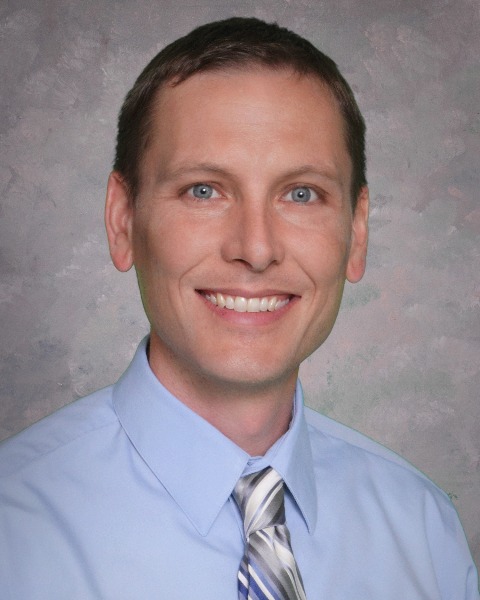
Blake W. Buchan, PhD, D(ABMM) is Associate Professor of Pathology at the Medical College of Wisconsin and Associate Director of Microbiology at Wisconsin Diagnostic Laboratories, Milwaukee, WI. He was awarded a PhD in microbiology from the University of Iowa in 2009 and completed postdoctoral training in Clinical Microbiology at the Medical College of Wisconsin and Froedtert Hospital in 2011. Dr. Buchan is an active member and serves on volunteer committees for several professional societies including ASM, AMP, and SCACM. He has authored >90 peer reviewed scientific publications, invited reviews, and book chapters; is a member of the editorial board for the Journal of Clinical Microbiology, and is an Associate Editor for the American Journal of Clinical Pathology. His interests are broad and include novel molecular diagnostics for the detection of bacterial, viral and fungal pathogens.
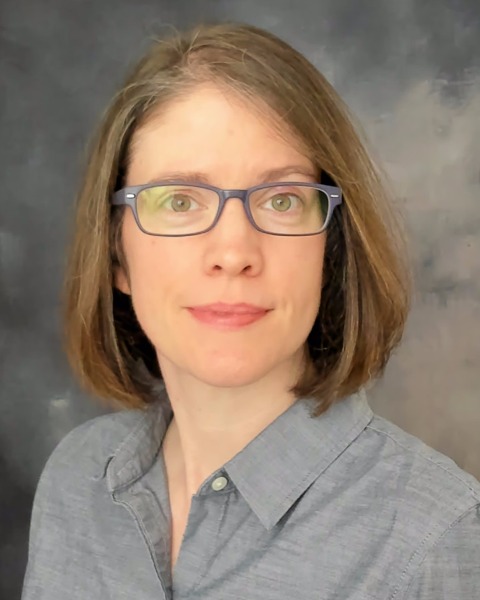
Heather Carleton, MPH, PhD, is the chief of the Enteric Diseases Laboratory Branch in the Division of Foodborne, Waterborne and Environmental Diseases at CDC. Heather joined the CDC in 2012 and led the development of whole genome sequence-based analysis tools for the transition of the foodborne molecular surveillance network, PulseNet, from pulsed field gel electrophoresis (PFGE) to whole genome sequencing (WGS). Her team also develops approaches to do metagenomic subtyping directly from patient specimens, focusing on what is next in molecular foodborne disease surveillance. Dr. Carleton received her PhD from Yale University in Microbial Pathogenesis in 2012, her MPH from University of California Berkeley in Infectious Diseases in 2002, and Bachelor’s in Microbiology from University of Michigan.

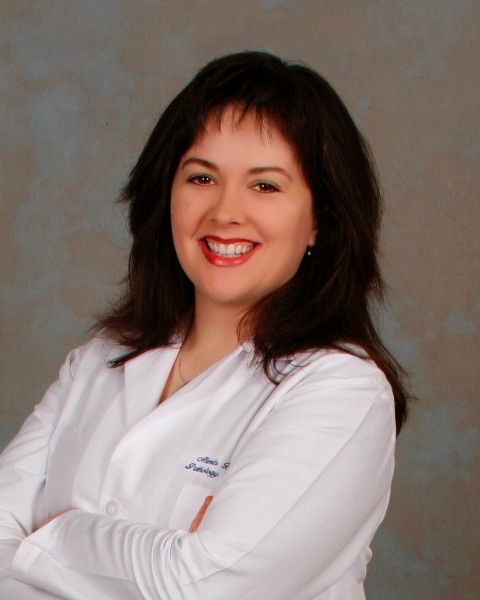
Alexis Carter, MD, is the Physician Informaticist for the Laboratory at Children’s Healthcare of Atlanta and an Adjunct Associate Professor within the Department of Pathology and Laboratory Medicine at Emory University. Dr. Carter is teaching faculty for the Clinical Informatics Board Review Course presented by the American Medical Informatics Association. She is chair of the Electronic Health Records and Genomics Working Group within the Association of Molecular Pathology, and she is the current Secretary for the Clinical and Laboratory Standards Institute document development committee for two-dimensional barcoding for both clinical and anatomic pathology laboratory specimens. She was the senior author for the guideline on validation of next-generation sequencing bioinformatics pipelines from the Association of Molecular Pathology, the College of American Pathologists, and the American Medical Informatics Association. In the College of American Pathologists, Dr. Carter is the Vice-Chair of the Informatics Committee and helped develop the original validation guideline for Whole Slide Imaging. She is a former chair of the International Pathology and Laboratory Medicine Special Interest Group for SNOMED-CT International, a former president of the Association of Pathology Informatics and was the inaugural and re-elected chair of the Informatics Subdivision of the Association for Molecular Pathology. She is an Associate Editor of the Journal of Molecular Diagnostics, an Associate Editor for Administrative and Regulatory Affairs for Archives of Pathology and Laboratory Medicine, an editorial board member of the Journal of Pathology Informatics, and a reviewer for multiple scientific journals in molecular diagnostics, genetics and informatics. She is board certified in clinical informatics, molecular genetic pathology, anatomic pathology and clinical pathology.
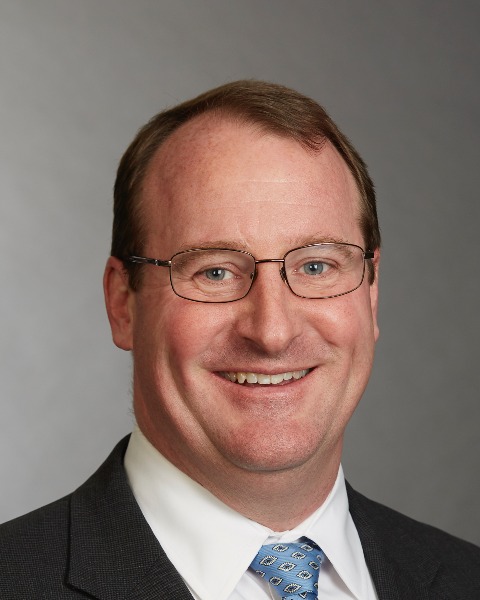
Samuel K. Caughron, MD lives in Kansas City with his wife and children where he is President & CEO of MAWD Pathology Group and Director of the MAWD Molecular Lab. In his practice, Dr. Caughron uses his training and expertise in Molecular Genetic Pathology to deliver state of the art genomic care in a community setting. He is recognized nationally for his insight and expertise in translating advanced technologies into viable, real-world clinical solutions. He has served on numerous national professional committees, boards and advisory panels for the Association for Molecular Pathology (AMP) as well as the College of American Pathologists (CAP). He currently serves on the Board of the AMP, as well as Chair of AMP's Economic Affairs Committee. He is also currently Vice President for the Missouri Society of Pathologists. Dr. Caughron received his medical degree and AP/CP training from Creighton University in Omaha, Nebraska and completed a fellowship in Molecular Genetic Pathology at Vanderbilt University in Nashville, Tennessee.
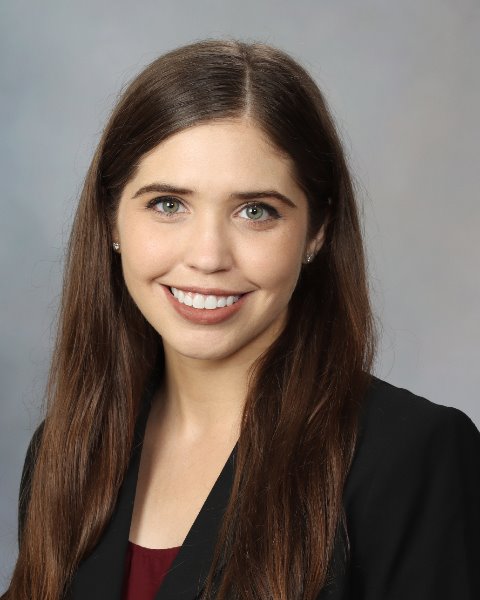
Lauren Choate, PhD is a Laboratory Genetics and Genomics Fellow at Mayo Clinic in Rochester, MN. Prior to her fellowship, Lauren earned her PhD at Cornell University in Ithaca, NY where she studied gene regulation in the human immune system. Lauren specializes in bioinformatics, sequencing data analysis, and hereditary genomics.
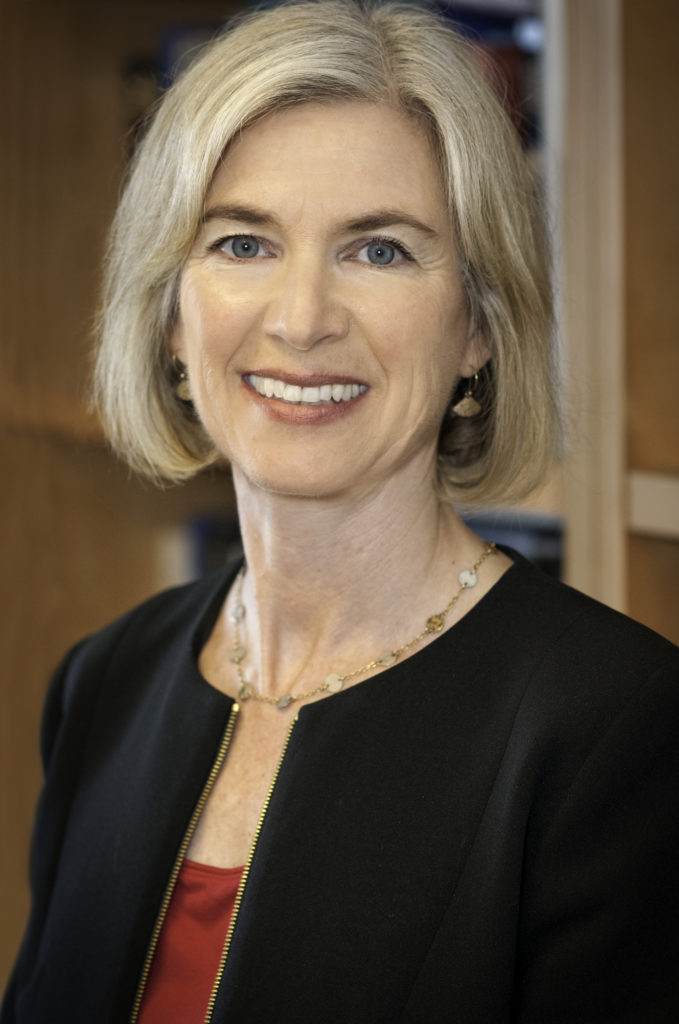
Jennifer Doudna, PhD is a biochemist at the University of California, Berkeley. Her groundbreaking development of CRISPR-Cas9 — a genome engineering technology that allows researchers to edit DNA — with collaborator Emmanuelle Charpentier earned the two the 2020 Nobel Prize in Chemistry and forever changed the course of human and agricultural genomics research. She is also the Founder of the Innovative Genomics Institute, the Li Ka Shing chancellor’s chair in Biomedical and Health Sciences, and a member of the Howard Hughes Medical Institute, Lawrence Berkeley National Lab, Gladstone Institutes, the National Academy of Sciences, and the American Academy of Arts and Sciences. She is a leader in the global public debate on the responsible use of CRISPR and has co-founded and serves on the advisory panel of several companies that use the technology in unique ways. Doudna is the co-author of “A Crack in Creation,” a personal account of her research and the societal and ethical implications of gene editing.
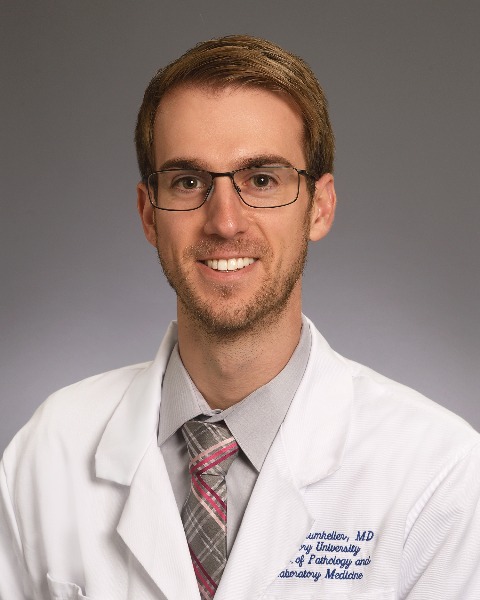
Bradley Drumheller, MD is a molecular genetic pathology fellow at Emory University Hospital in Atlanta, GA. He completed his hematopathology fellowship at the Hospital of the University of Pennsylvania and AP/CP residency at Emory University Hospital. During his residency, he completed a residency education track and plays an active part in resident and medical student learning. His research interests include CAR-T cell therapy and minimal residual disease testing in hematologic neoplasms.
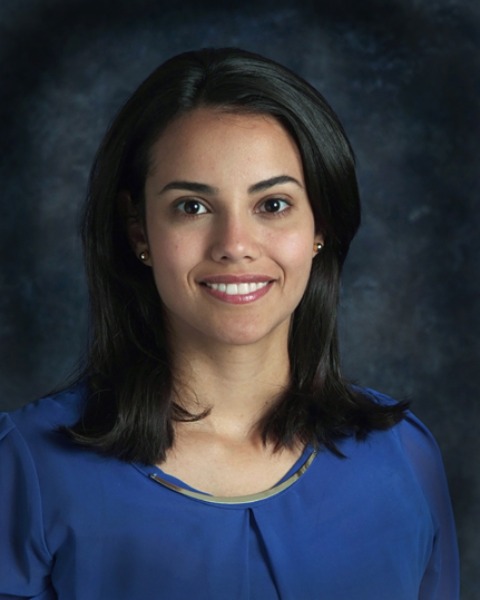
Farah El-Sharkawy, MD, is a PGY-4 Anatomic and Clinical Pathology Resident at the Hospital of the University of Pennsylvania in Philadelphia, PA. A native of Colombia, she received her M.D. degree from Universidad del Valle in Cali, Colombia. Following residency, she will complete a fellowship in Molecular Genetic Pathology (2022-2023).
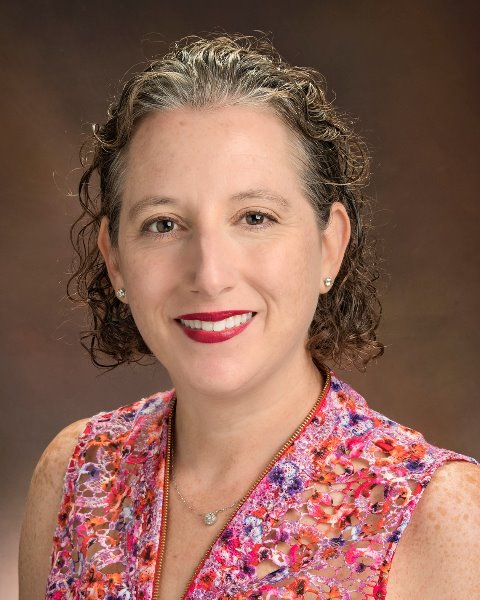
Marni J. Falk, M.D., FACMG is Executive Director of the Mitochondrial Medicine Frontier Program at The Children's Hospital of Philadelphia (CHOP), Clinical Geneticist, and Professor in the Division of Human Genetics within the Department of Pediatrics at the University of Pennsylvania (UPENN) Perelman School of Medicine in Philadelphia, Pennsylvania. Dr. Falk received her B.S. degree in Biology graduating Summa cum Laude and Phi Beta Kappa, as well as M.D. degree in the Alpha Omega Alpha Medical Honor Society from a combined 7-year program at the George Washington University School of Medicine. She then completed dual specialty training in a 5-year Pediatrics and Clinical Genetics residency program at Case Western Reserve University. Dr. Falk has authored more than 140 peer-reviewed publications in the areas of human genetics and mitochondrial disease, and is Editor of the “Mitochondrial Disease Genes Compendium”. She works to improve precision clinical care, diagnostic approaches, and genomic resources for mitochondrial disease, including organization of the global Mitochondrial Disease Sequence Data Resource (MSeqDR) consortium and is Co-Leader of the ClinGen Mitochondrial Disease Gene and Variant Expert Panels. Dr. Falk designs and directs multiple clinical treatment trials in mitochondrial disease patients, and is PI of an active translational research laboratory group at CHOP that investigates the causes and global metabolic consequences of mitochondrial disease, and targeted therapies, in C. elegans, zebrafish, mouse, and human tissue models of genetic-based respiratory chain dysfunction.
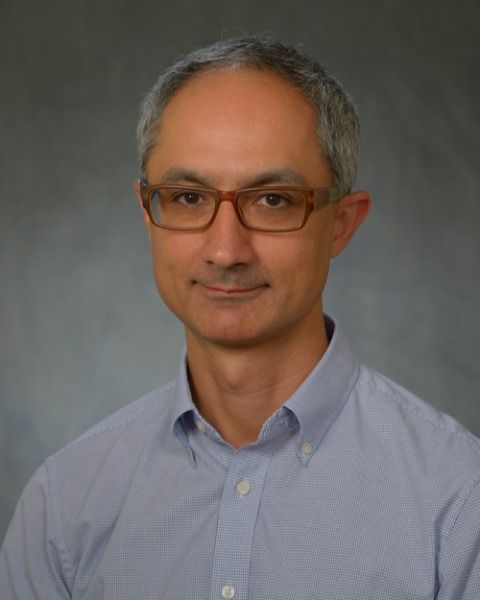
Robert B. Faryabi, PhD, MSc, completed his postdoctoral training at the Nussenzweig laboratory, after which he joined the University of Pennsylvania's Perlman School of Medicine, where he is currently an Assistant Professor of Pathology and Cancer Biology. Dr. Faryabi's lab investigates mechanisms of epigenetic deregulation with the emphasis on chromatin mis-folding in cancer. His multidisciplinary lab also innovates statistical and machine learning approaches to accelerate biological discoveries. Dr. Faryabi has been a recipient of a number of awards including NCI Cancer Research Training Award, Cooper Scholar Award, and Susan G. Komen Career Catalyst Research Award.
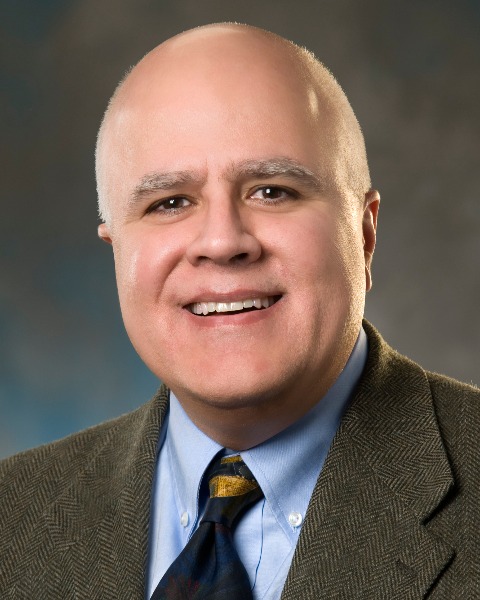
Haydar Frangoul, MD, is the Director of the Pediatric Stem Cell Transplant program at Tristar Centennial Children's Hospital and the Sarah Cannon Research Institute in Nashville Tennessee. Dr Frangoul completed his MD degree at the American University of Beirut followed by Pediatric residency at Duke University. He then went to complete a fellowship in Pediatric Hematology/Oncology and Stem Cell Transplant at the University of Washington and the Fred Hutchinson Cancer Center. He was the Carolyn Perot Rathjen Endowed Professor of Pediatric Hematology/Oncology at Vanderbilt University until 2015 when he joined Sarah Cannon research Institute to lead the Pediatric Stem Cell Transplant Program. His primary interest is allogeneic stem cell transplant using an alternative donor sources especially for non-malignant diseases. Dr Frangoul has authored or co-authored more than 130 peer reviewed manuscripts. He has been one of the leading investigators in a clinical trial using CRISPR-Cas9 gene editing for patients with sickle cell disease and transfusion dependent thalassemia.
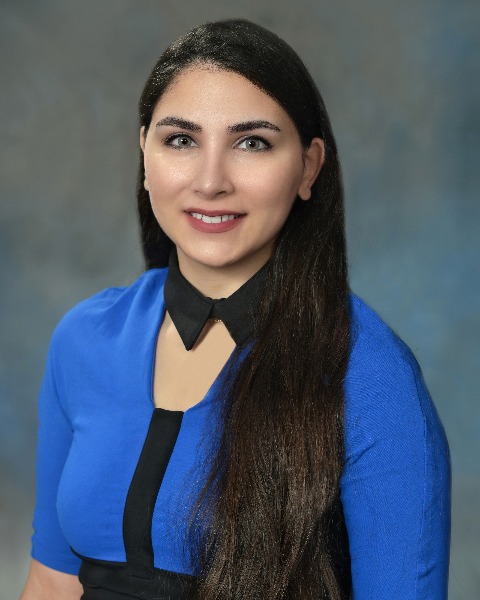
Annie Garcia, MD is a Molecular Genetics Pathology (MGP) fellow at Baylor College of Medicine (BCM), Houston-Texas. She received her MD followed by Surgical Pathology Diploma from the Holy Spirit University of Kaslik, Beirut- Lebanon. She completed her AP/CP residency at BCM where she served as a chief resident (2020-2021). She is AP/CP American Board certified. Following her MGP fellowship training, she will complete another fellowship in Bone and Soft Tissue Pathology at University of Washington, Seattle. Her clinical and research interests involve the integration of molecular findings in surgical pathology to discover biological markers and targetable alterations in tumors, especially those of the bone and soft tissue.
Tasos Gogakos
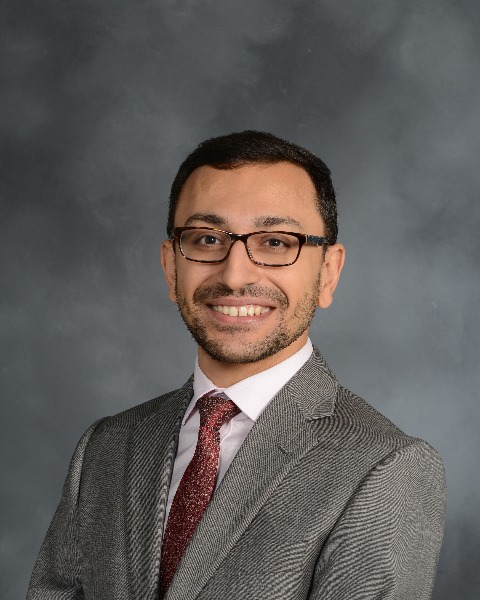
Hamza N. Gokozan, MD is a board-certified pathologist (AP/CP/Cytopathology) and currently serves as an assistant professor of pathology at Weill Cornell Medical College and an attending surgical and cytopathologist at New York Presbyterian Hospital in New York City. Shortly after his graduation from Pamukkale University Medical School in Turkey, he travelled to US in 2013 for his post-doctoral research studies at the Ohio State University which was followed by AP/CP residency, chief residency and cytopathology fellowship at Case Western Reserve University (CWRU). He has multiple awards and recognitions including International Society of Neuropathology’s trainee travel award, American Association for Blood Banking trainee scholarship, USCAP trainee award for his contributions in pathology research, and CWRU’s Harry Taylor Award. He has published more than 20 peer reviewed articles in the field of medicine, including high impact pathology journals such as Modern Pathology, American Journal of Surgical Pathology, and Cancer Cytopathology. His research interests include integration of ancillary studies to daily cytopathology practice, cytopathology quality improvement, and tumors of endocrine system/head and neck organs.
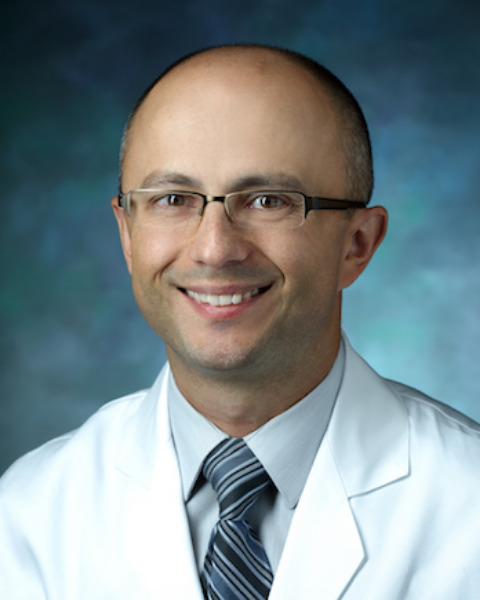
Lukasz Gondek, MD, PhD is an Assistant Professor of Oncology at the Johns Hopkins University School of Medicine in the Division of Hematologic Malignancies. Dr. Gondek received his medical degree from the University of Silesia, Poland and his Ph.D. from the University of Warsaw, Poland. Following his post-doctoral training at the Cleveland Clinic, he completed residency in internal medicine at the Cleveland Clinic and his fellowship training in hematology at the Johns Hopkins University. His academic research focuses on cancer genomics as well as cancer stem cell biology in bone marrow failures and myeloid malignancies. His most recent work is focused on the biology and clinical consequences of clonal hematopoiesis.

Yonatan H. Grad, MD, PhD is the Melvin J. and Geraldine L. Glimcher Associate Professor of Immunology and Infectious Diseases at the Harvard T.H. Chan School of Public Health. He received his B.A. degree from Johns Hopkins University, an M.Phil from Cambridge University, and his M.D. and Ph.D. from Harvard Medical School. Dr. Grad’s research uses interdisciplinary methods, including basic microbiology, genomics, and mathematical modeling, to study how pathogen evolve and spread through populations, with a focus on antibiotic resistance and on Neisseria gonorrhoeae as a model system. His lab's overall aim is to improve diagnostics, therapeutics, and clinical and public health strategies to aid in the control of infectious diseases.
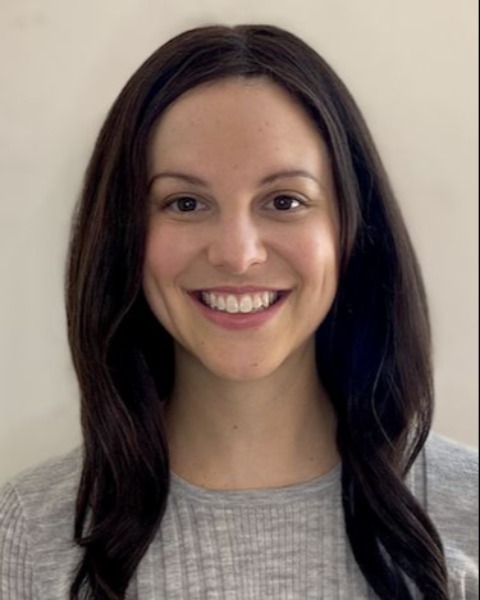
Rebecca Greenblatt is a fourth year medical student at the Perelman School of Medicine at the University of Pennsylvania. She is currently applying to pathology residency and hopes to pursue molecular pathology. Rebecca received her bachelor of science in economics with a concentration in statistics from the Wharton School at the University of Pennsylvania.
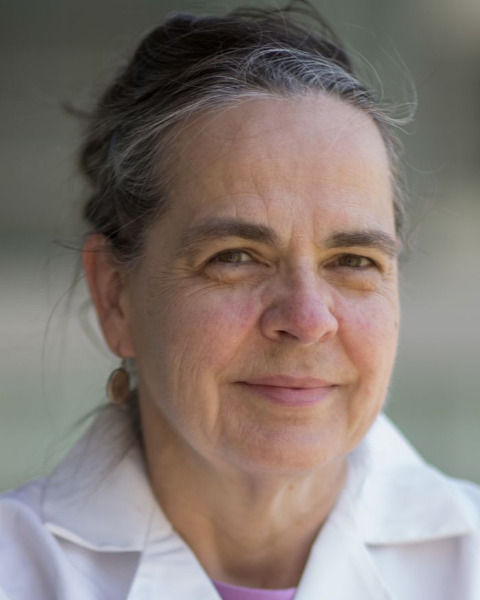
Margaret Gulley, MD is Professor and Director of Molecular Pathology Programs in the Department of Pathology and Laboratory Medicine at University of North Carolina at Chapel Hill. Clinical laboratory services span cancer, heritable disease, infectious disease, transplant and immunologic disorders. Research services include development, validation and implementation of CLIA-grade gene tests or genomic panels supporting translational research in oncology and virology to add value for diagnosis, risk stratification and monitoring.
.jpg)
Eitan Halper-Stromberg, MD, PhD is currently a clinical pathology resident at Johns Hopkins. Eitan is from Takoma Park, Maryland. He completed his undergraduate degree in mechanical engineering at University of Maryland, College Park. He then worked for LexisNexis as a software engineer before returning to graduate school. He received a PhD in Human Genetics at Johns Hopkins University, with a focus in bioinformatics. While in graduate school, he met his wife at a swing dancing lesson. Five years later, they moved to Denver where she completed her psychiatry residency. He did a post doctoral fellowship at the University of Colorado/National Jewish Health Hospital and subsequently attended University of Colorado School of Medicine. While in Colorado, he contributed to the research of the COPDGene Study. Eitan enjoys spending time with his wife and two children, camping, running and following current events.
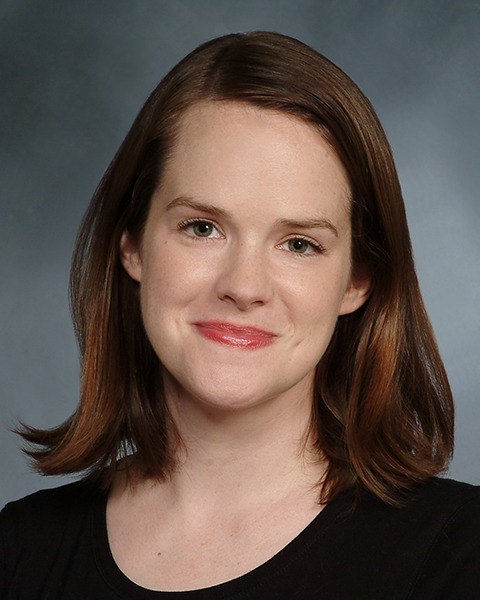
Rebecca M. Harris, MD, is the Director of the Infectious Disease Diagnostics Lab at the Children's Hospital of Philadelphia. She is an Assistant Professor of Pathology and Laboratory Medicine at the Perelman School of Medicine at the University of Pennsylvania and co-directs the site's clinical microbiology fellowship program. She is a clinical pathologist with board certification in medical microbiology, and, prior to her current role, served as the Assistant Director of the Central Laboratory and Director of Point of Care Testing at New York-Presbyterian/Weill Cornell. Her current clinical focus is on the development and optimization of molecular testing for infectious diseases.
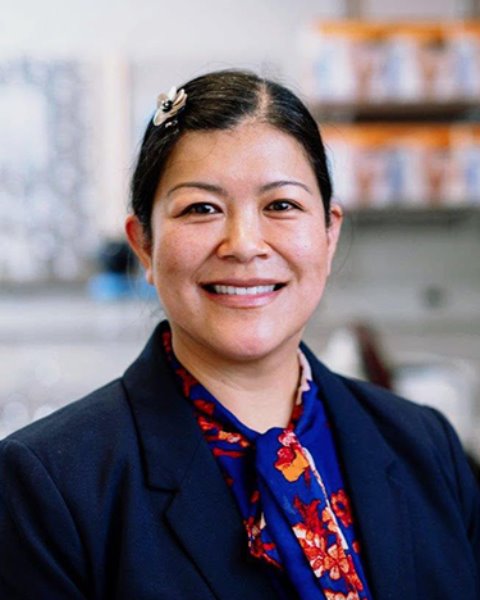
Linda Hasadsri, MD, PhD is the Director of the Molecular Technologies Laboratory and is an Assistant Professor in the Department of Laboratory Medicine and Pathology at Mayo Clinic in Rochester, Minnesota. She is a former clinical genetic counselor who completed her MS in Genetic Counseling at California State University Northridge, followed by dual MD & PhD degrees at the University of Illinois Urbana-Champaign, and finally two fellowships in Clinical Biochemical and Clinical Molecular Genetics at Mayo Clinic Rochester. She has since worked at Mayo as a board certified clinical laboratory director for nearly 6 years. Her areas of expertise include the laboratory diagnosis of inborn errors of metabolism, mitochondrial disease, and hereditary epigenomics. Her additional interests include expanded carrier screening, neuromuscular disorders, cystic fibrosis, hereditary amyloidoses, and hemoglobinopathies
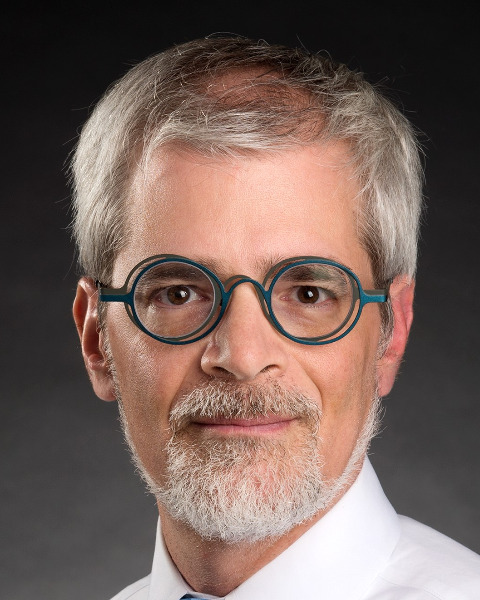
Randall Hayden, MD is Director of the Division of Clinical Pathology and Global Pathology, Director of Clinical and Molecular Microbiology, and Director of Pathology Informatics in the Department of Pathology at St. Jude Children’s Research Hospital, in Memphis, Tennessee, USA. His research interests focus on the application of molecular methods to diagnostic challenges in clinical microbiology, with particular emphasis on the diagnosis of infections in the immunocompromised host. He is editor-in-chief of Diagnostic Microbiology of the Immunocompromised Host, 2nd Edition; co-editor of Molecular Microbiology, Diagnostic Principles and Practice, 3rd Edition and of Medically Important Fungi, 6th Edition; and section editor for the Manual of Clinical Microbiology, 12th Edition, all from ASM Press. He serves as associate editor for the Journal of Clinical Microbiology. He is immediate past-president of the Pan-American Society for Clinical Virology (PASCV).
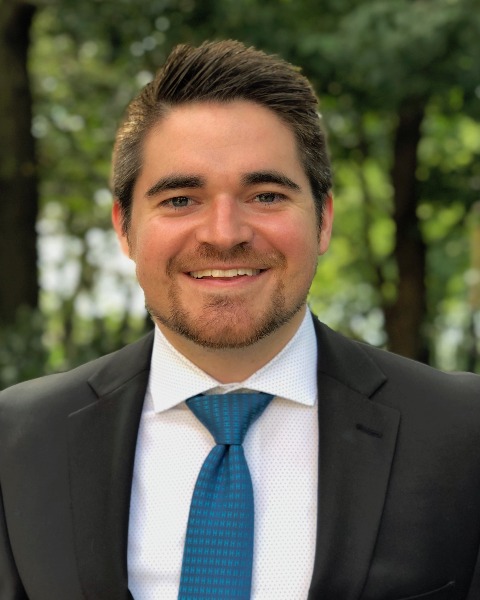
Matthew Hernandez, MD, PhD is a CP-only resident in the Physician-Scientist Track in Experimental Pathology (PSTEP) at the Icahn School of Medicine at Mount Sinai (ISMMS) in New York City. He was born and raised in Edinburg, TX, on the US-Mexico border in the Rio Grande Valley and received his bachelors in science in Biochemistry, Cellular and Molecular Biology at Brown University in 2007. Prior to his graduate education, he received an NIH/NIAID postbaccalaureate Intramural Research Training Award (IRTA) to work at the Rocky Mountain Laboratories, Research Technologies Branch/Genomics Unit in Hamilton, MT where he contributed to varius genomics projects studying pathogen-host interactions. Prior to residency, he graduated from the ISMMS Medical-Scientist Training Program (MSTP) in 2020 where he received received his MD and his PhD for his work investigating viral-host interactions and HIV diversification in vivo. His professional memberships include ASCP, ACLPS, AMP, and ASM. His research interests include developing novel molecular diagnostic methods and combining them with genomic surveillance efforts to gain a greater understanding of transmission and evolution of viruses and other emerging pathogens. After residency, he plans to complete a fellowship in medical microbiology and ultimately hopes to utilize his skills in virology and pathology as a physician-scientist in a clinical microbiology laboratory.
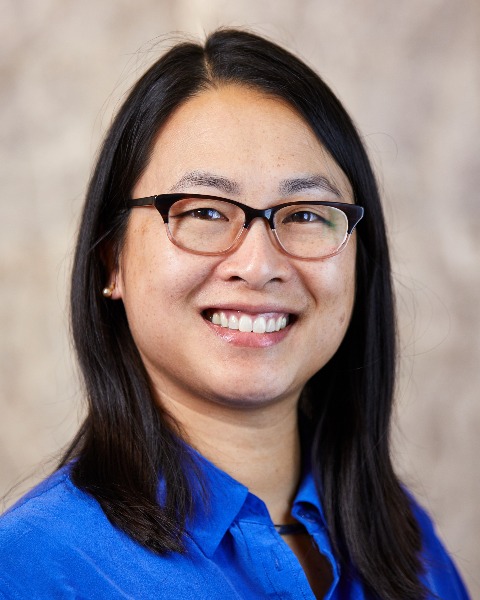
Lucia Hindorff, PhD, MPH is a Program Director in the Division of Genomic Medicine at the National Human Genome Research Institute. (NHGRI). She received her M.P.H. and Ph.D. degrees from the University of Washington, where her research focused on cardiovascular genetic epidemiology and motivating factors for using genetic tests in clinical care. At NHGRI, Dr. Hindorff is the lead Program Director for the Clinical Sequencing Evidence-Generating Research (CSER) program, a consortium to assess the clinical utility of genome sequencing in diverse settings and populations. She also leads the Polygenic RIsk MEthods in Diverse Populations (PRIMED) Consortium, a new research effort to improve the applicability of polygenic risk scores across diverse populations for a broad range of diseases and traits. Other activities include the Population Architecture using Genomics and Epidemiology (PAGE) program, a consortium formed to expand understanding of ancestral differences in genomic disease associations in large, diverse, well-characterized cohorts, and the online NHGRI Genome-wide Association Study (GWAS) Catalog. In her time at NHGRI, she has authored or co-authored over 100 publications and enjoys working with trainees and experienced investigators alike. In addition to managing her scientific portfolio, Dr. Hindorff is broadly interested in health information disparities, the integration of genomic tests into clinical care and practical issues related to large epidemiological studies.
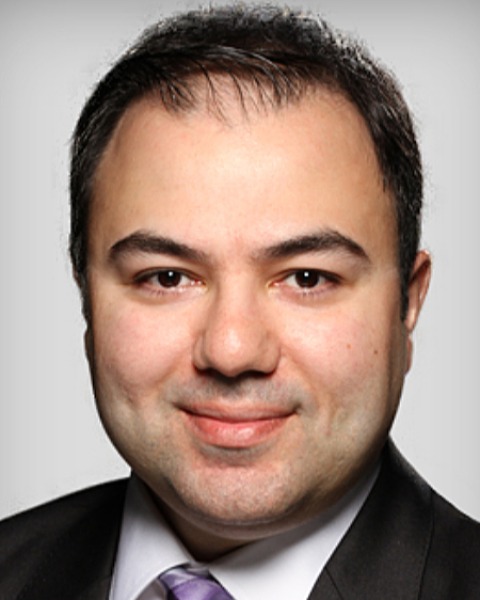
Parsa Hodjat, MD, is a Molecular Genetic Pathology fellow at Houston Methodist Hospital. He completed his residency in Anatomic and Clinical Pathology at Baylor Scott and White-Temple, Texas, followed by one year of Clinical Informatics fellowship at Houston Methodist Hospital. His research interests are in molecular diagnostics, bioinformatics, pathology analytics, and machine learning.
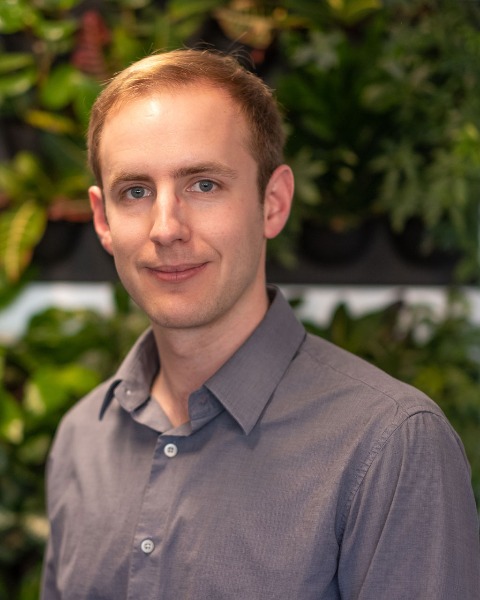
Julian Homburger, PhD, is a statistical geneticist and leads Color's data science team. At Color, Julian and his team focus on developing state-of-the-art algorithms and models for generating novel insights into disease risk and population health. The team has worked to implement novel genetic tests such as polygenic risk scores, and, during the SARS-CoV-2 outbreak, build epidemilogic models to help understand the impact of proactive diagnostic testing on disease spread in workplaces and schools. Prior to Color, Julian completed his PhD training at Stanford, where he worked both on understanding the genetic basis of hypertrophic cardiomyopathy as well as understanding the genetic ancestry of diverse human populations.
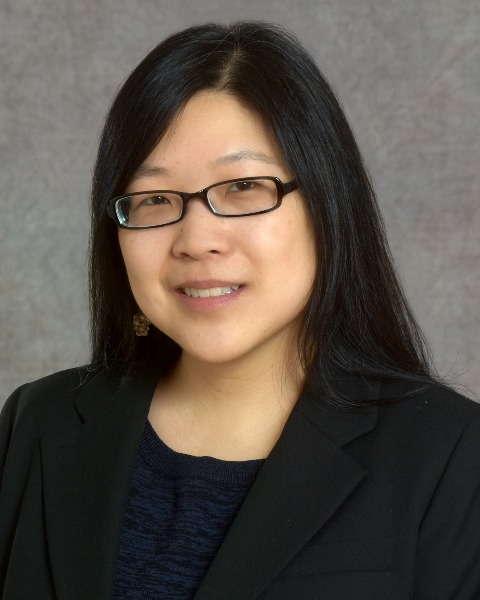
Susan J. Hsiao, MD, PhD is an Assistant Professor in the Department of Pathology and Cell Biology at Columbia University Medical Center. She serves as Director of Bioinformatics in the Laboratory of Personalized Genomic Medicine. Her interests include translational research in cancer genomics, improvements in storage and reporting of clinical genomics data, and utilization, coverage and reimbursement of molecular assays. She is a member of AMP’s Economic Affairs Committee and the Clinical Practice Committee. She received her MD and PhD degrees from New York University School of Medicine. She completed residency training in anatomic pathology at New York Presbyterian Hospital/Columbia University Medical Center and completed fellowship training in molecular genetic pathology at University of Pittsburgh Medical Center.
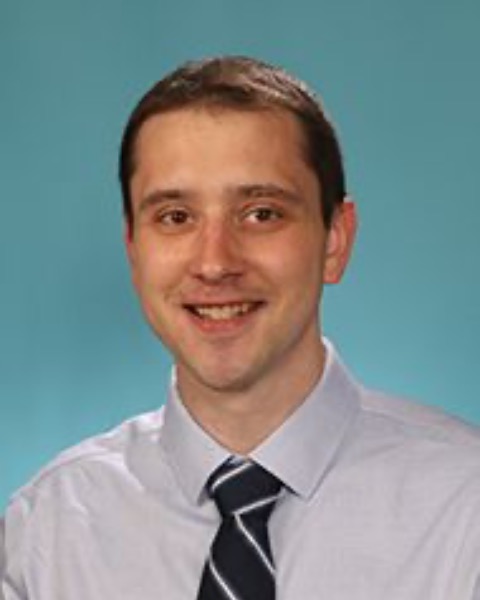
Andrew Hughes, MD, PhD, is a PGY-3 Clinical Pathology resident at Washington University School of Medicine. He completed an undergraduate degree in Mathematics at the College of William and Mary followed by an MD/PhD in Molecular Genetics and Genomics at Washington University School of Medicine. As a resident, Drew's research interests have focused on the development and clinical implementation of molecular diagnostic testing as well as the application of machine learning to automate laboratory processes and enhance the interpretation of laboratory data.

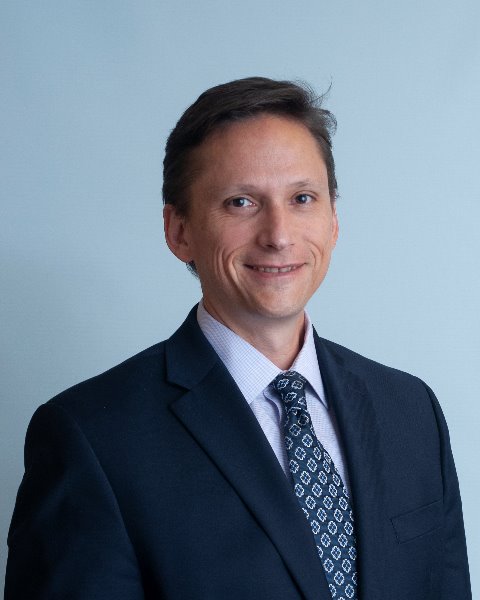
John Iafrate, MD, PhD, is a Professor of Pathology at Harvard Medical School and is the Vice Chair of Academic Affairs at the Massachusetts General Hospital (MGH) Pathology Department. Dr. Iafrate received his MD/PhD dual degree from the State University of New York at Stony Brook in 2000 and was trained in anatomic and molecular genetic pathology at Brigham and Women’s Hospital. Dr. Iafrate is a board-certified Pathologist, and has been on staff at MGH since 2005. His research is focused on lung and brain tumors, where he has been closely involved in the clinical development of crizotinib and companion diagnostics in ALK- and ROS1 positive lung cancers. His lab has developed several technologies for sequencing tumors, including SNaPshot and the next-generation sequencing-based Anchored Multiplex PCR, both techniques have been widely used in the molecular diagnostics community. His lab has focused recently on the development of sequencing assays to detect circulating tumor DNA.
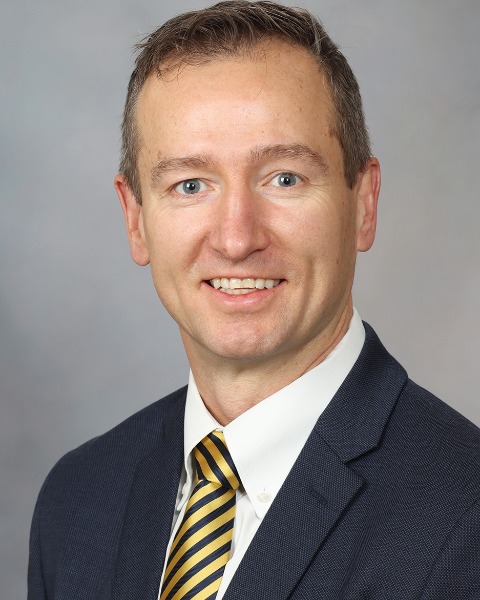
Eric Klee, PhD, is a consultant-research in the Division of Biomedical Statistics and Informatics, Department of Quantitative Health Sciences, with joint appointments in the Department of Clinical Genomics and in the Division of Laboratory Genetics, Department of Laboratory Medicine and Pathology. He is the Director of Bioinformatics and the Director of the Translational Omics Program, within Mayo Clinic’s Center for Individualized Medicine. Dr. Klee is also the Director of Bioinformatics for the Advanced Diagnostics Laboratory at Mayo Clinic. Dr. Klee holds the academic rank of Associate Professor of Biomedical Informatics, Mayo Clinic College of Medicine. He joined the staff of Mayo Clinic in 2005. Dr. Klee’s research focuses on the translational application of -omic technology to advance clinical diagnostics and patient care. He is actively engaged in the development and implementation of systems to support sequence analysis and interpretation of variant information for genetic testing, with a special interest in rare, undiagnosed, Mendelian Disease. Current research includes the use of RNA-sequencing and methyl-sequencing to aid in clinical diagnoses, and anti-sense oligonucleotides as a potential therapeutic strategy for patients. Dr. Klee has authored numerous journal articles, abstracts and other written publications. In addition to his research activities, Dr. Klee is active in education, teaching clinical bioinformatics to Department of Laboratory Medicine and Pathology residents and fellows, leading a graduate course on analysis and interpretation of exome and genome data, and co- director of the Discovery Science concentration in the new Masters of AI in Healthcare. He also provides mentorship to medical and predoctoral students and holds full faculty privileges in Clinical and Translational Science at Mayo Graduate School, Mayo Clinic College of Medicine.
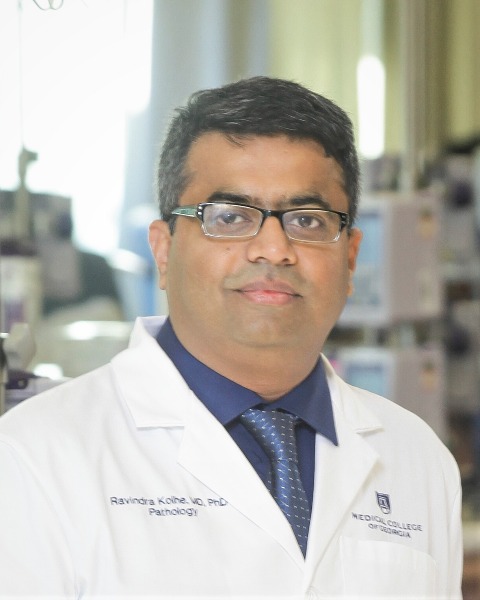
Ravindra Kolhe, MD, PhD, FCAP is a Vice-Chairman, in the Department of Pathology at MCG, and divides his time between Molecular Pathology, Cytogenetics, Breast Pathology, teaching, and research. He is the CLIA laboratory director for the Georgia Esoteric & Molecular Labs and also serves as the Medical Director for the Cytogenetics Laboratory. Dr. Kolhe attended the Mahatma Gandhi Mission’s Medical College for medical studies and completed a Ph.D. in Biology at Mississippi State University and a residency in Pathology at MCG. Dr. Kolhe is a nationally recognized molecular pathologist with a focus on compressive genomic testing for oncology and co-leads an international consortium called SEQUOIA for the democratization of NGS testing in oncology. Dr. Kolhe is a physician-scientist with an interest in COVID19 immunology and immunogenomics and leads a consortium on COVID-19 Host Genome Structural Variants with multiple other researchers across the world. Currently, at Augusta University he is leading an NIH-sponsored study SPARTA investigating natural and vaccine-induced immunity in COVID19 individuals. Last year Dr.Kolhe was the Lead Pathologist on the Georgia Governor’s task force for COVID-19 and lead the efforts for statewide testing efforts for COVID19. https://covid19hostgenomesv.org/consortium.html

Runjun Kumar, MD, PhD is a resident physician of pediatrics and medical genetics at Baylor College of Medicine in Houston, Texas. He completed his MD and PhD at Washington University in St. Louis, where his graduate studies focused computational methods for identifying driver mutations in somatic cancer mutation datasets. Following residency he will complete a fellowship in molecular genetic pathology at Baylor College of Medicine and Texas Children's Hospital. His research interests include the development of bioinformatic methods for somatic and germline variant interpretation and optimizing genetic test utilization for both individual patients and health care systems. He has published studies in high-visibility journals including Nature Genetics and Bioinformatics.
Ahmed Lazim
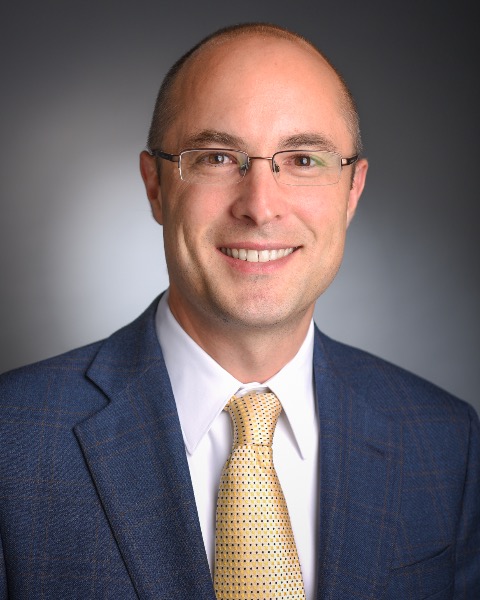
Coleman Lindsley, MD, PhD is an Assistant Professor of Medicine at Harvard Medical School and Dana-Farber Cancer Institute, where he is Director of Molecular Diagnostics in Hematologic Malignancies and Director of the Hematologic Malignancies Data Repository. He received his M.D. and Ph.D. in Immunology from Washington University School of Medicine, then completed a residency in internal medicine at Brigham and Women's Hospital and a fellowship in oncology at the Dana-Farber Cancer Institute. He is a member of the MDS Genetics Subcommittee for the NIH National MDS Study and the International Working Group for Prognosis in MDS (IWG-PM) molecular committee. The primary focus of his laboratory is the biology and treatment of myeloid malignancies. His genetic studies have led to new genomic models of leukemia classification and MDS outcome after stem cell transplantation. His laboratory uses mouse and cell line models to dissect the mechanistic basis of genetic cooperation during myeloid disease progression, with a specific focus on mechanisms of leukemia initiation in patients with predisposition syndromes.
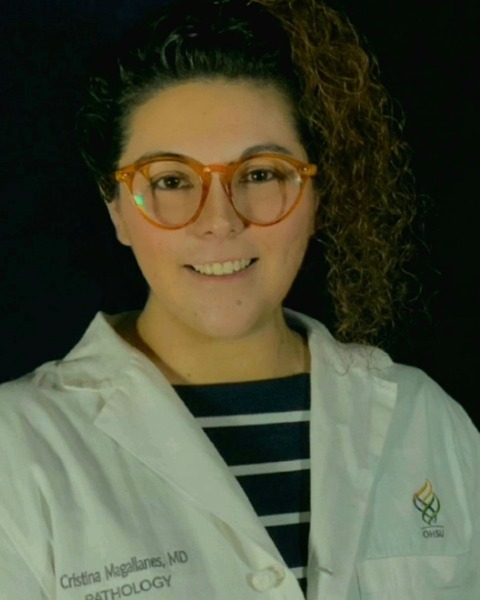
Maria Magallanes Hoyos, MD is originally from Veracruz, Mexico. She completed a one-year research internship in the Breast Cancer department at Instituto Nacional de Cancerologia in Mexico City. She obtained her medical degree with honors at UPAEP in Puebla, Mexico. She is currently a third-year AP/CP resident at Oregon Health & Science University. There, she has contributed to several research projects in the areas of Molecular Pathology and Hematopathology. She received the Society of '67 Kinney Scholar Program Award in 2021, as well as the CAP 2021 Leadership Development Award. She currently serves on the CAP Residents Forum Executive Committee as an alternate delegate to the CAP House of Delegates. She will start her Molecular Genetic Pathology Fellowship in 2023 at OHSU Knight Cancer Institute and will then pursue a hematopathology fellowship
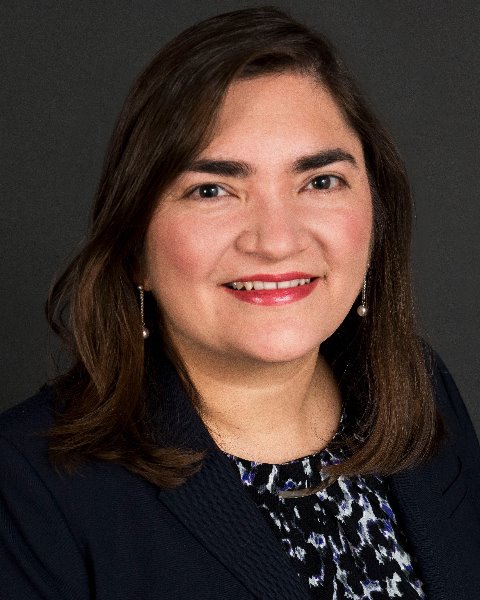
Macela Maus, MD, PhD, is currently an Associate Professor at Harvard Medical School, the Paula O’Keefe Chair in Oncology and Director of Cellular Immunotherapy at Massachusetts General Hospital (MGH) Cancer Center, an Attending Physician in the Hematopoietic Cell Transplant and Cell Therapy division of Oncology at MGH. She is an Associate Member of the Broad Institute of Harvard and MIT, and an Associate Member of the Ragon Institute of MGH, MIT, and Harvard. Dr. Maus is internationally known for her work as a translational physician-scientist in the field of immunology, particularly as it relates to T-cell immunotherapies and cellular therapies in the treatment of cancer. Her laboratory focuses on the biology of human T cell activation, costimulationm, and memory, and on the application of human T cell therapies to human disease, including forward and reverse translation of engineered T cell therapies in early-phase clinical trials. She has authored over 100 papers indexed in pubmed and holds three NIH R01 grants and several Investional New Drug appplications (IND’s). Dr. Maus holds an undergraduate degree from Massachusetts Institute of Technology (MIT) and graduate degrees (M.D., Ph.D.) from University of Pennsylvania. Dr. Maus trained in internal medicine at University of Pennsylvania and in hematology and medical oncology at Memorial Sloan Kettering Cancer Center, is board-certified in these three disciplines, and practices medical oncology. She also serves on several scientific and clinical advisory boards for the biotechnology industry as well as external academic medical centers.
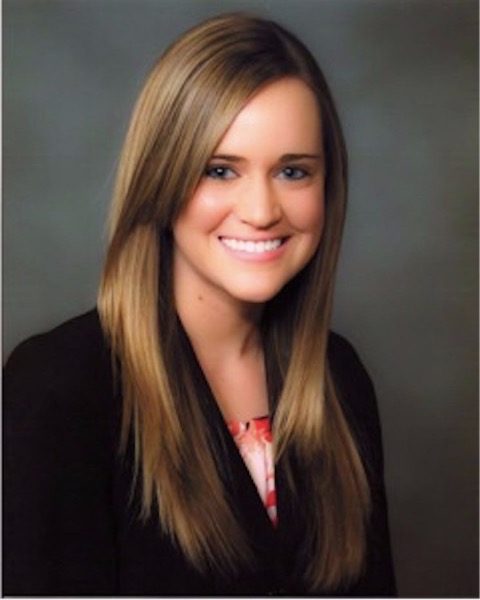
Shannon McNulty, PhD, is a postdoctoral research associate in the Department of Genetics at the University of North Carolina at Chapel Hill. She obtained a BS in Biology with a specialization in Biotechnology from the University of Florida and a PhD in Molecular Genetics and Microbiology from Duke University. In her current role, she is involved in efforts within the Clinical Genome (ClinGen) Resource Consortium to improve clinical variant interpretation through the development of disease- and gene-specific guidelines for assessing variant pathogenicity. Shannon's research interests also include exploring the clinical utility of exome sequencing as a first-line diagnostic test through the NCGENES 2 study.
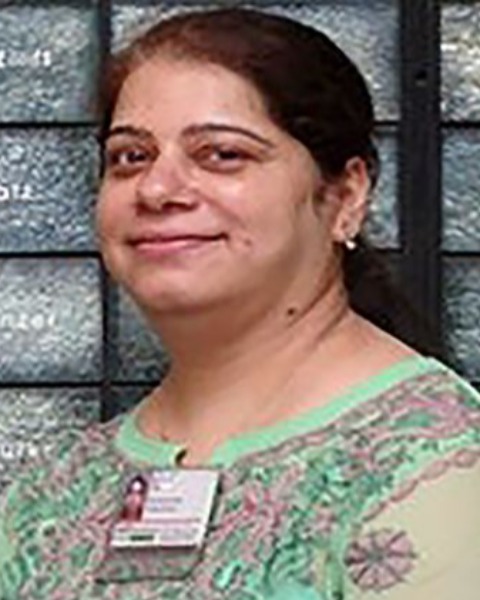
Meenakshi Mehrotra, PhD is a Assistant Professor in Department of Pathology, Molecular and Cell-Based Medicine Icahn School of Medicine at Mount Sinai, New York NY. She is also an Assistant Director of Clinical Molecular Pathology Lab, Mount Sinai Health System. NY. She received her doctoral degree in Molecular Biology and genetic Engineering from the University of Lucknow, INDIA. Dr. Mehrotra did her postdoctoral training in at the University of Texas MD Anderson cancer Center Houston, Tx and has an excellent background in Clinical genomics and Molecular Diagnostics. Dr. Mehrotra is involve in new assay and technology development, which involves somatic mutation detection, identification of translocations, copy number detection for cancer-related clinical molecular diagnostics and research. She has played a key role in the validation and implementation of a next generation sequencing assay for the detection of somatic mutations in solid tumors and liquid biopsies. She participates in clinical and translational studies in oncology and her areas of expertise include evaluation and validation of new diagnostic platforms for applications in oncology which can be used for a variety of clinical and investigational applications.

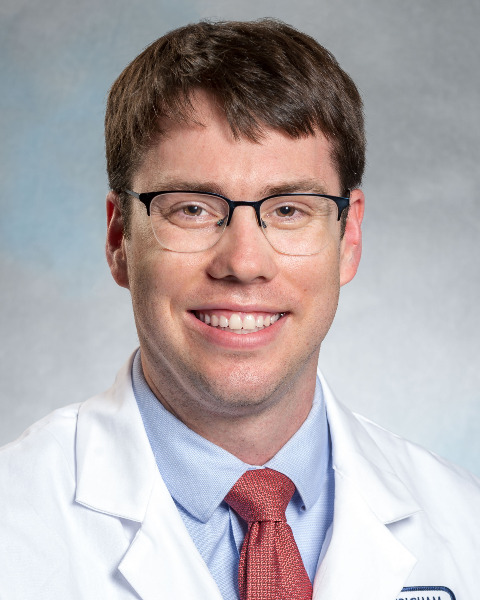
Alexander Neil, MD, PhD is a surgical pathology resident at Brigham and Women's Hospital and clinical fellow at Harvard University. He received his undergraduate degree from Stanford University in Molecular Biology and received his medical and doctoral degrees from Tufts University. His academic interests include the impact of DNA repair deficiencies on therapeutic efficacy in solid tumors and the usage of cytopathology specimens in molecular diagnostics. He will be pursuing a fellowship in molecular genetic pathology following residency.
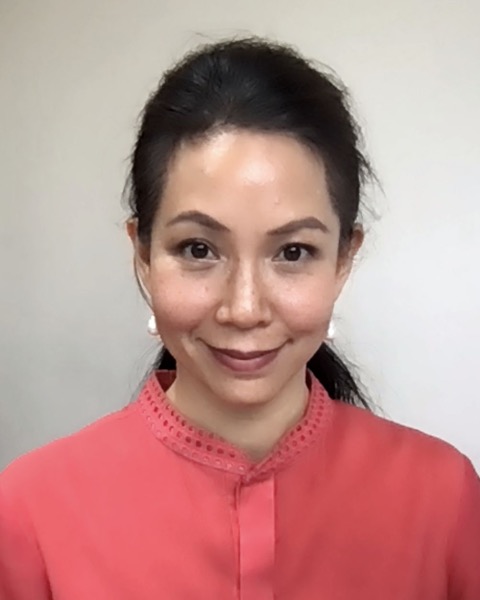
Serena Nik-Zainal, PhD is a CRUK Advanced Clinician Scientist and Honorary Consultant in Clinical Genetics in Cambridge, UK. Serena went to the UK as a PETRONAS scholar from Malaysia in 1993, obtaining a First in Physiology at University of Cambridge before completing her medical degree in 2000. She trained as a physician and specialized in Clinical Genetics. She undertook a PhD at the Wellcome Sanger Institute in 2009 pioneering exploration of breast cancers through whole genome sequencing (WGS). Serena demonstrated how detailed downstream analyses of all mutations present in WGS breast cancers could reveal mutational signatures, imprints left by mutagenic processes that have occurred through cancer development. She also identified a novel phenomenon of localized hypermutation termed 'kataegis'. Serena continues to explore large cancer datasets using computational approaches while investigating biological underpinnings of mutational signatures through cell-based model systems. She led a clinical project, Insignia recruiting patients with DNA repair/replication defects, aging syndromes and neurodegeneration, and is also focused on advancing the field of mutational signatures into the clinical domain. Serena’s team at University of Cambridge are particularly known for their founding approaches in analyzing whole cancer genomes for clinical utility. This has included the development of mutational-signature-based clinical algorithms for cancer genome interpretation, including subsequent application of these algorithms into retrospective and prospective clinical studies.
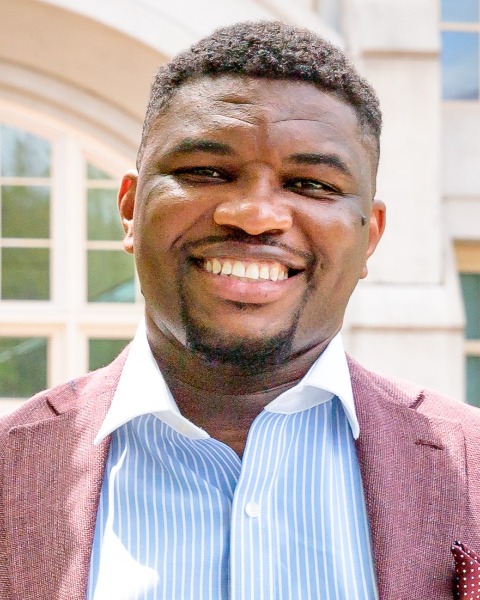
Dingani Nkosi, MD, PhD is a second year pathology AP/CP resident at University of Rochester Medical Center. He attended medical school at University of Malawi College of Medicine, and after graduation, he worked as a medical officer for two years in the adult oncology unit at the major referral hospital, Queen Elizabeth Central Hospital, Malawi. His interest in clinical research started early in medical school and in 2013, he moved to the United States to pursue his interests in molecular cancer research at Florida State University. For his PhD research, Dingani worked in the lab of Dr. David Meckes studying extracellular vesicles(EVs) to understand mechanisms of how Epstein Barr virus contribute to cancer development and progression . As an AP/CP resident at URMC, he plans to continue research and translate his research knowledge into tools for clinical diagnosis through use of blood derived extracellular vesicles as diagnostic and prognostic biomarkers. Following residency he hopes to pursue hematopathology and molecular pathology fellowship.
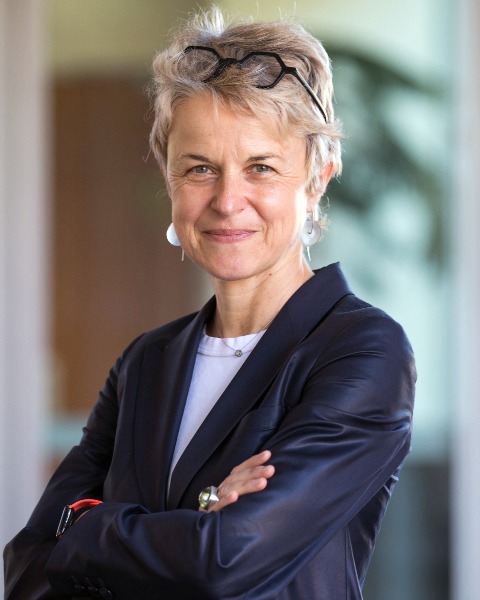
Melanie Ott, MD, PhD is the director of the Gladstone Institute of Virology and a professor of medicine at the University of California San Francisco. She studied under Nobel laureate Harald zur Hausen in Heidelberg/Germany and has been recognized for her contributions to HIV Cure research and the pathogenesis of hepatitis C and Zika virus infections. Since January 2020, she has pivoted part of her efforts to SARS-CoV-2 research. Her work is focused on infectious SARS-CoV-2 and harnessing the host response for new therapeutics. Her lab also develops new rapid diagnostics based on CRISPR and mobile phone technologies. Melanie is an elected member of the Association of American Physicians (AAP) and a fellow of the American Academy of Microbiology (AAM).

Peter J. Park, PhD, is a professor of biomedical informatics at Harvard Medical School. His research group (http://compbio.hms.harvard.edu) specializes in computational and statistical analysis of large-scale DNA sequencing data to understand genetic and epigenetic mechanisms related to disease processes. Originally trained in applied mathematics (B.A., Harvard; Ph.D., Caltech), he was introduced to molecular biology and genetics during his postdoctoral studies in biostatistics. His laboratory has developed a number of algorithms for genome analysis, especially for identification of structural alterations from whole-genome sequencing data, and has made substantial contributions to consortium projects such as The Cancer Genome Atlas (TCGA), Encyclopedia of DNA Elements (ENCODE), and 4D Nucleome (4DN). He also serves as the director of the Bioinformatics and Integrative Genomics Ph.D. program at Harvard Medical School and a co-leader of the Cancer Data Science Program at Dana-Farber/Harvard Cancer Center.
.jpg)
Deborah Persaud, MD, is Professor in the Department of Pediatrics at the Johns Hopkins University School of Medicine and in Molecular Microbiology and Immunology and International Health in the Johns Hopkins Bloomberg School of Public Health. Her research focuses on the pathogenesis of HIV persistence, latency and control in pediatric and adolescent infections. She is the Scientific Chair of the HIV Cure Committee for the NIH-sponsored- International Maternal Pediatric Adolescent AIDS Clinical Trials (IMPAACT) Network, where she oversees the development of clinical trials targeting HIV remission and cure therapeutics for infants, children and adolescents. Her report on the “Mississippi Baby” was the first well-documented case of HIV remission from very early ART that formed the basis for several clinical trials of very early treatment of infants to achieve HIV remission and cure.
Tomaz Pickrell, PhD
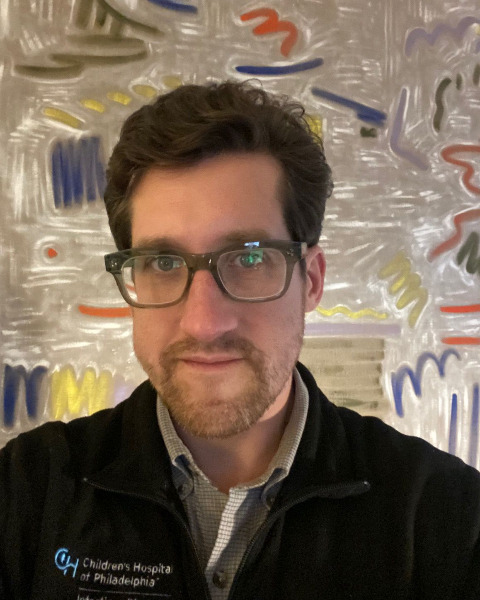
Paul J. Planet, MD, PhD is a pediatric infectious disease specialist at the Children's Hospital of Philadelphia and an Assistant Professor at the University of Pennsylvania. Dr. Planet's laboratory studies the evolution of infectious disease using molecular and bioinformatic techniques. Special interests include evolution of Staphylococcus aureus, nontuberculous mycobacteria, and Prevotella melaninogenica, and SARS-CoV2. Clinically, in addition to general infectious disease, Dr. Planet specializes in the treatment of infections in cystic fibrosis. Dr. Planet received his undergraduate degree from Yale University. He completed his MD, PhD, Residency, and Fellowship at Columbia University.
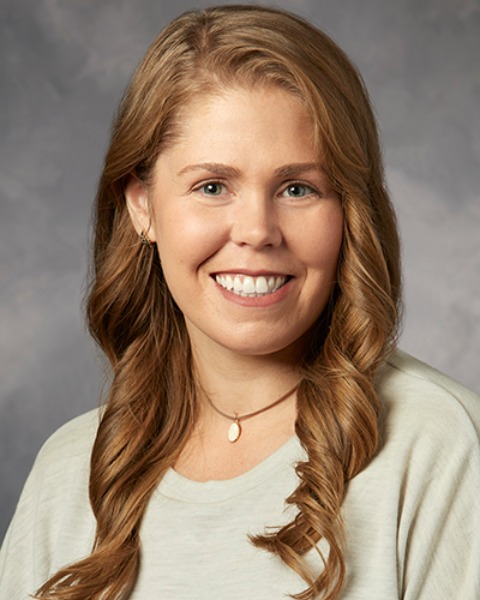
Alice B. Popejoy, PhD is an Assistant Professor in the Division of Epidemiology, Department of Public Health Sciences at UC Davis. She conducted postdoctoral research at Stanford University in the Department of Biomedical Data Science and the Stanford Center for Biomedical Ethics, after receiving a PhD in Public Health Genetics and a Certificate in Statistical Genetics from the University of Washington. Dr. Popejoy's Public Health Genomics lab operates at the intersections of computational genomics, human population genetics, clinical genetics, biomedical data science, and bioethics. Her current research is focused on investigating diversity measures such as race, ethnicity, and ancestry in genomics and medicine, with the goal of developing standards, recommendations, and novel approaches to modeling human population diversity. She is involved in several international Consortia, leading the Ancestry & Diversity Working Group of the Clinical Genome Resource (ClinGen) and the embedded ethical, legal, social implications (ELSI) team of the Human Pangenome Reference Consortium (HPRC).
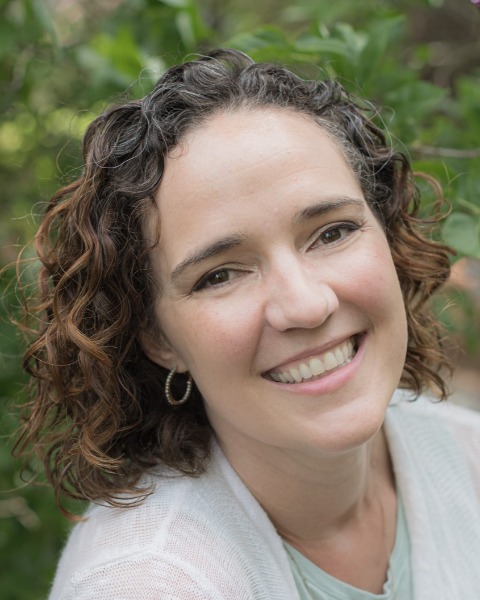
Laura B. Ramsey, PhD is an Associate Professor in the Divisions of Clinical Pharmacology and Research in Patient Services, Pharmacy Research at Cincinnati Children's Hospital Medical Center and the University of Cincinnati College of Medicine Department of Pediatrics. She is the Co-Director of the Genetic Pharmacology Service that implements pharmacogenetic testing in clinical care. Her research focuses on the pharmacogenetics of antidepressants and the pharmacogenetics and pharmacokinetics of methotrexate in pediatric patients. She is an active member of the Clinical Pharmacogenetics Implementation Consortium and led the guideline for simvastatin dosing based on SLCO1B1 genotype.
Jeffrey Rosenfeld, PhD
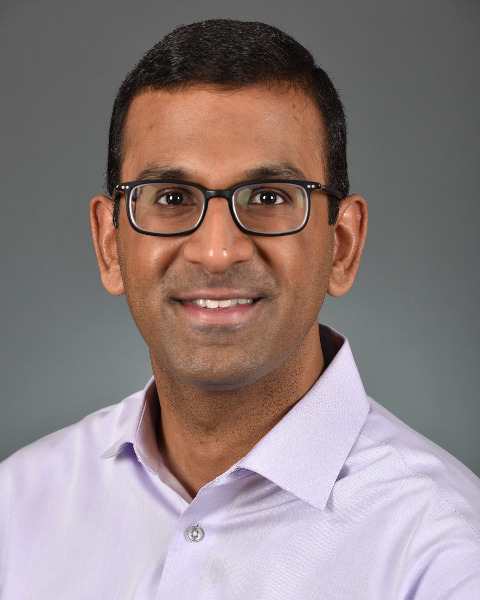
Vijay G. Sankaran, MD, PhD is the Lodish Family Chair in the Division of Hematology/Oncology, Boston Children's Hospital; Associate Professor of Pediatrics, Harvard Medical School; Attending Physician in the Dana-Farber/ Boston Children's Cancer and Blood Disorders Center. He received a B.A. and M.S. from the University of Pennsylvania in biochemistry, an M.Phil. from the University of Cambridge in biochemistry, and earned his M.D. and Ph.D. degrees from Harvard Medical School. He subsequently did a residency in pediatrics at Boston Children's Hospital and Boston Medical Center, followed by a fellowship in pediatric hematology/oncology at Boston Children's Hospital and the Dana-Farber Cancer Institute. Dr. Sankaran has received a number of awards for his work on using human genetics to better understand the process of blood cell production, including most recently the 2018 Gale and Ira Drukier Prize in Children's Health Research and the 2019 Seldin-Smith Award for Pioneering Research from the American Society of Clinical Investigation.
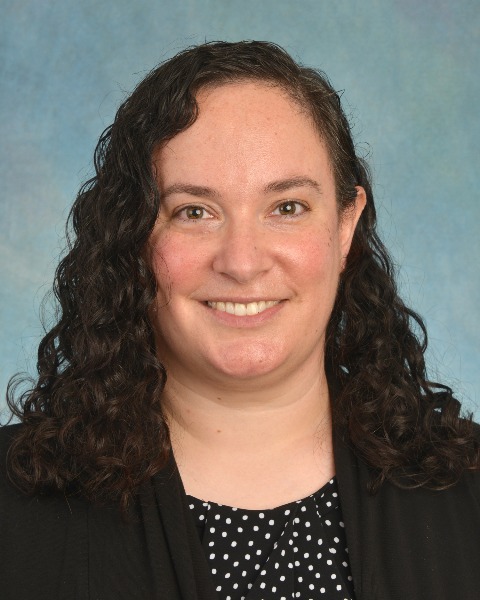
Laura Schultz-Rogers, PhD is a laboratory genetics and genomics fellow at the University of North Carolina at Chapel Hill. Prior to fellowship she did her postdoctoral training at the Center for Individualized Medicine at the Mayo Clinic analyzing whole exome sequencing data, coordinating functional studies, and developing novel sequencing tools to solve rare and undiagnosed genetic disorders. She obtained her PhD at Iowa State University studying the epigenetic mechanisms of neurogenesis in zebrafish. Her current interests include validation of next-generation sequencing assays for hematological malignancies.
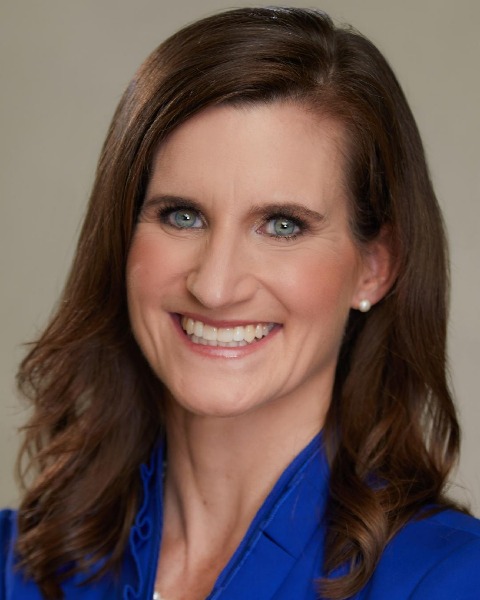
Michelle Shiller, DO, AP/CP, MGP is a board-certified Mayo-trained molecular pathologist with PathGroup where she is Associate Medical Director of Genomic and Molecular Pathology Services. Dr. Shiller is also Co-Medical Director of Cancer Genetics at the Baylor Sammons Cancer Center. An enthusiastic member of AMP, the CAP and the ACCC (recent member Board of Trustees, now Chair of Communications Committee), Dr. Shiller is often working to break down barriers to appropriate test interpretation, and facilitate multidisciplinary dialogues to optimize the integration of molecular pathology in the patient care. Based primarily in Dallas, Dr. Shiller works within the Baylor Scott and White Healthcare System to synergize test patterns, education and follow through in the diverse utility of molecular diagnostics.
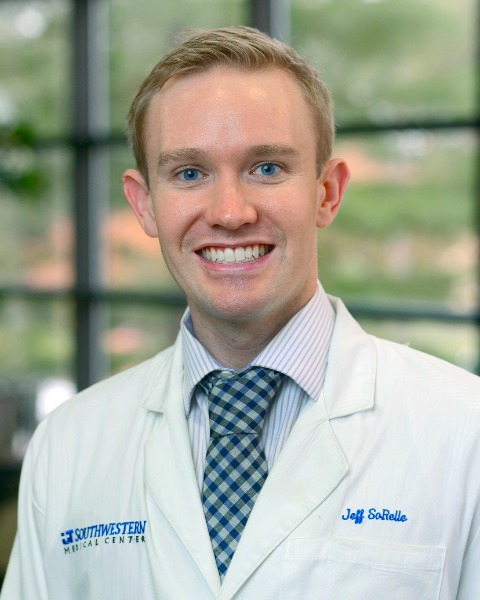
Jeffrey SoRelle, MD is an Assistant Professor in UT Soutwhestern Pathology department and associate lab director of the clinical NGS lab. Physician Scientist Trained under Nobel Prize winner, Bruce Beutler. Skilled in mouse and human genetics, allergy, immunology, and molecular diagnostics. Leading the UTSW Covid-19 variant tracking effort with sequencing and novel multiplex genotyping by Fragment Analysis.
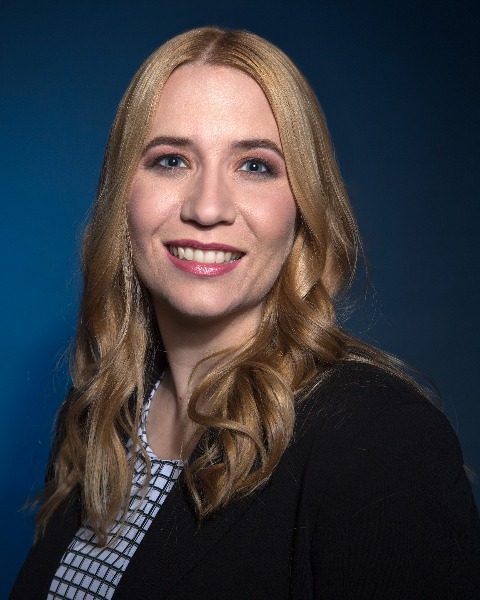
Tabetha Sundin, PhD, HCLD (ABB), MB (ASCP)CM is a scientific doctor and writer with over 10 years of experience in the healthcare sector. Dr. Sundin earned a Doctor of Philosophy (Ph.D.) in biomedical sciences at Old Dominion University (Norfolk, VA). She then served as a Scientific Director for Sentara Healthcare, an Integrated Delivery Network in Virginia, covering both Molecular Diagnostics and Serology laboratories. Dr. Sundin was responsible for clinical and business oversight of the molecular diagnostics and serology laboratories at Sentara Healthcare, from 2013 through 2020. During her tenure she was responsible for insourcing numerous tests including oncology panels based on NGS technology. Additionally, through her leadership of a multidisciplinary committee she instituted pathology-driven reflexive biomarker testing. Dr. Sundin now serves as a Senior Global Medical Affairs Leader in I-O Diagnostics for Astrazeneca. She is passionate about providing education on the importance of biomarker testing for oncology treatment decisions. She has had the honor of presenting at numerous regional, national and international symposiums which included oral presentations at annual meetings for USCAP, AMP, and NSH. When not working she enjoys spending time with her husband and their five children.
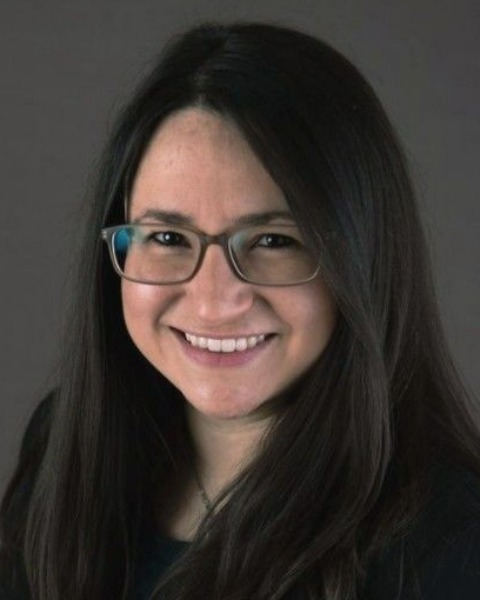
Diana Toledo, PhD, MS, CGC is currently the Associate Director of the Clinical Research Sequencing Platform at the Broad Institute of MIT and Harvard, managing clinical operations in the genomic and exomic sequencing space as well as large-scale COVID diagnostic testing. Dr. Toledo received her PhD from Dartmouth College in Genetics with a focus on transcriptomics and epigenomics in the context of systemic sclerosis. Dr. Toledo then went on to a clinical postdoctoral fellowship at Dartmouth-Hitchcock Medical Center's Molecular Pathology Laboratory under the supervision of Dr. Greg Tsongalis. Dr. Toledo is also a certified genetic counselor and received her MS in Genetic Counseling from Boston University.
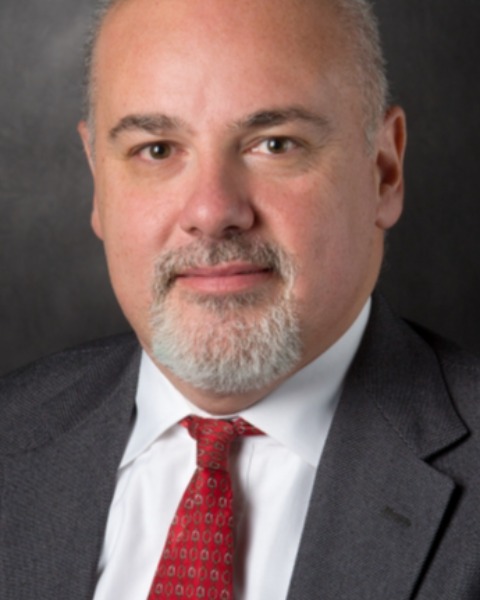
Gokce Toruner, MD, PhD is a laboratory geneticist specialized in clinical cytogenetics and clinical molecular genetics. He is currently an associate professor in the Department of Hematopathology at the MD Anderson Cancer Center. Dr. Toruner received his medical degree from Hacettepe University, Turkey and earned his Ph.D. from Bilkent University, Turkey. Following his research post-doctoral training at the Rutgers-New Jersey Medical School, he completed a clinical laboratory fellowship in clinical molecular genomics and cytogenomics in the same institution. His clinical expertise is on cancer cytogenomics, NGS based solid tumor testing. and liquid biopsy. His current academic activities focus on structural and copy number aberration in neoplasia and incidental constitutional genetic findings detected during somatic genetic testing.

Fyodor Urnov, PhD is a Professor of Molecular and Cell Biology at the University of California, Berkeley. His research focuses on advancing genome editing technology and pushing the boundaries of how it can be applied to solve real-world problems. Dr. Urnov is a pioneer in the field of genome editing, with a diverse background in academia, industry and the nonprofit sector. He joined the Innovative Genomics Institute (IGI) as Scientific Director of Technology and Translation in 2018. Before joining the IGI he served as the Associate Director of Altius Institutes for Biomedical Sciences. Prior, he was at Sangamo BioSciences from 2000 - 2016, where he co-developed and co-named human genome editing at native loci using engineered nucleases, and led the effort developing all major modalities of editing (correction, disruption, and integration). He also pioneered efforts to use engineered transcription factors for targeted epigenome engineering. As VP of Discovery and Translational Research, he shared leadership responsibilities for preclinical research for the first in vivo clinical trial of an engineered epigenome modulator; the first clinical trial for genome editing; and the first genome-edited crop. He's authored more than 70 scientific publications and is an inventor of more than 130 issued and pending U.S. patents related to genome editing and targeted gene regulation technology.
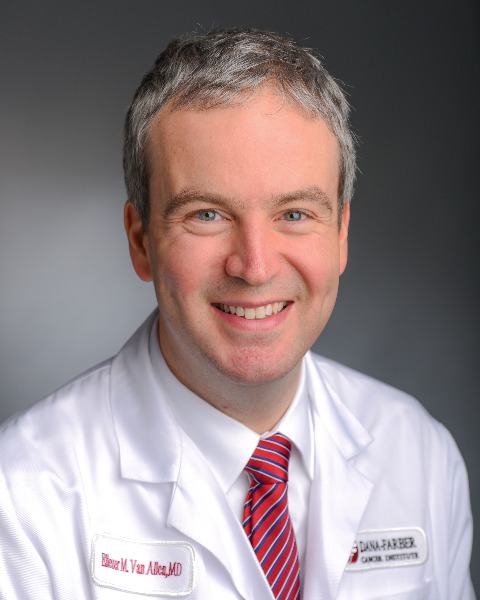
Eliezer Van Allen, MD is an Associate Professor of Medicine at Harvard Medical School, a clinician at Dana-Farber/Partners Cancer Care, and an Associate Member at the Broad Institute of MIT and Harvard. His research focuses on computational cancer genomics, the application of new molecular profiling technologies to advance precision cancer medicine, and studying resistance to cancer therapeutics. As both a computational biologist and medical oncologist, he has specific expertise in clinical computational oncology and the development of algorithms to analyze and interpret genomic data for clinically focused questions. Originally from Los Angeles, CA, he studied Symbolic Systems at Stanford University, obtained his M.D. from UCLA, and completed a residency in internal medicine at UCSF before coming to Boston and completing a medical oncology fellowship at the Dana-Farber/Partners Cancer Care program.

Ron HN Van Schaik, PhD is a registered European Specialist Laboratory Medicine and a Full Professor of Pharmacogenetics. He is head of the Dept. Clinical Chemistry at the Erasmus University Medical Center Rotterdam, and Director of the International (IFCC) Expertcenter for Pharmacogenetics. Main interest is the implementation of pharmacogenetics in clinical practice. Specific research topics oncology, cardiology, psychiatry and pain medication. Prof van Schaik participates in several national and international groups on Pharmacogenetics, such as ESPT (Co-Founder/Past President), PGRN, CPIC, DPWG, IUPHAR, EMA, PharmVar and AMP. In 2001, he received the Ortho Clinical Diagnostics Award for Outstanding Research, in 2009 the AACC Outstanding Speaker Award, and in 2010 the AACC/Mol Pathology Award for Outstanding Scientific Research.
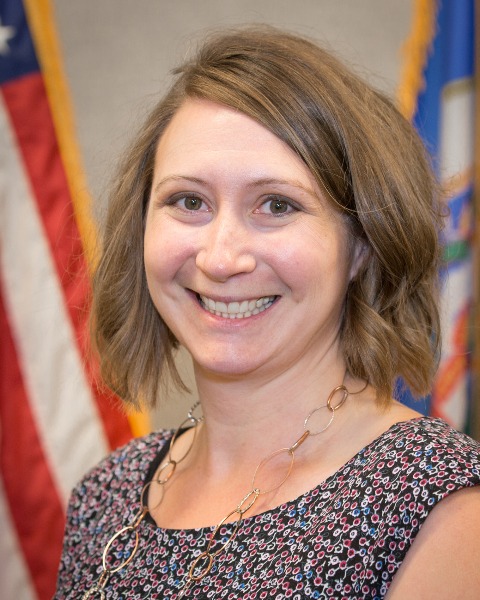
Sara Vetter, PhD, D(ABMM) is the Assistant Division Director at the Public Health Laboratory for the Minnesota Department of Health. In that role she serves as CLIA director and provides strategic direction for the division in the areas of quality and information techniology. Dr. Vetter earned a BS and PhD in Microbiology from the University of MN. Previous to her current role, Dr. Vetter completed a research fellowship at CDC/DVBD in Ft. Collins, Colorado, and served at the Manager of Infectious Diseases at the Public Health Lab.
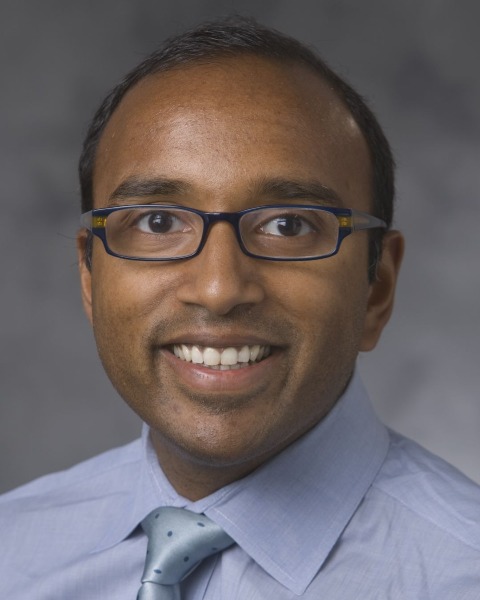
Deepak Voora, MD is Associate Professor of Medicine at the Center for Applied Genomics & Precision Medicine at Duke University School of Medicine and a staff cardiologist at the Durham Veterans Affairs Medical Center. His research focusses on the discovery and translation of pharmacogenomic biomarkers to address the hypothesis that tailoring drug therapy on the basis of genomic information can improve health outcomes. He has chosen some of the most commonly used medications used worldwide – antiplatelet and statin medications – for his research program. As Director of the VA Pharmacogenomics testing for Veterans (PHASER) program, he is leading the VA’s national implementation of pre-emptive, panel-based, pharmacogenetic testing to up to 250,000 Veterans.
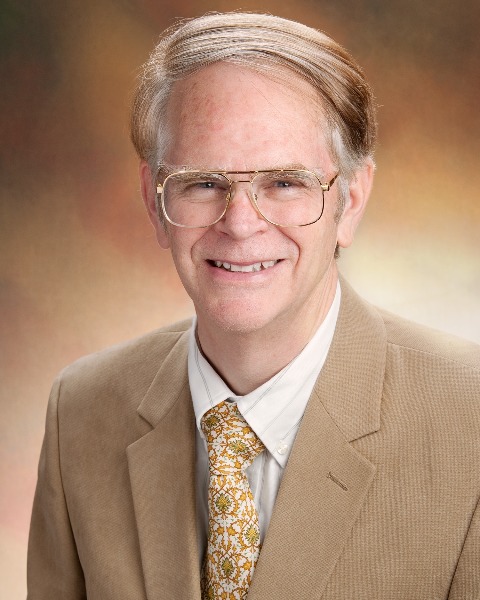
Douglas Wallace, PhD Member of the National Academy of Science since 1995, is Professor of Pediatrics, Division of Human Genetics, at the University of Pennsylvania and the founding director of the Center for Mitochondrial and Epigenomic Medicine at the Children's Hospital of Philadelphia. Douglas C. Wallace founded the field of human mitochondrial DNA (mtDNA) genetics and demonstrated that mtDNA variation has profound implications for human health and disease, the origins and ancient migrations of our ancestors, human and animal adaptation, and perhaps the origin of species.

Robert Wildin, MD is a clinical and laboratory geneticist and technophile. A graduate of MIT and UCSF, he completed Pediatrics residency and Medical Genetics fellowship at the University of Washington. His career has traversed a wide swath of the human and clinical genetics landscape, including research in rare disease biology and molecular immunology, rural community solo practice, independent software and database consulting, and holding a minor leadership role at NHGRI/NIH where the portfolio included family health history, provider genomic competency, and health policy. In 2017, he accepted an academic dual appointment in Pathology & Lab. Med. and Pediatrics at University of Vermont Medical Center, where he sees pediatric and adult genetics patients, signs out somatic tumor NGS sequencing for precision oncology, teaches at multiple levels in several departments and schools, and leads an innovative, multi-disciplinary clinical genomic screening program for any-health-status primary care patients (“The Genomic DNA Test”). His passion is optimizing genetic discovery, testing, and diagnosis by addressing the information, technical, and logistical gaps that weaken the value proposition for genomic healthcare transformation.
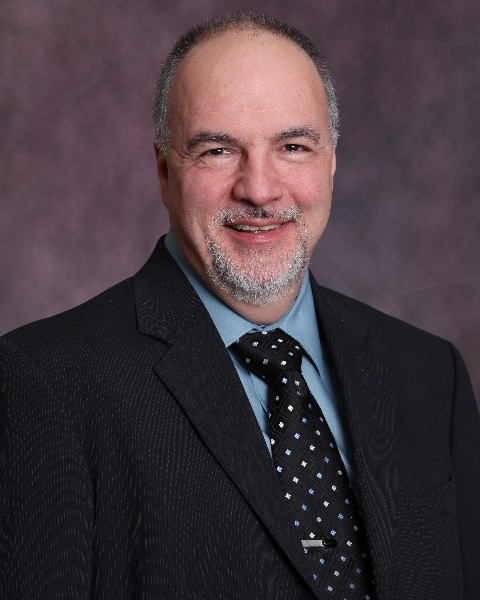
Marc Williams, MD, FAAP, FACMG, FACMI is a clinical geneticist. He is professor and director emeritus of Geisinger’s Genomic Medicine Institute. He served as the co-PI of the Geisinger eMERGE project and is the medical director of the whole genome sequencing clinical research project. He is site PI and leads the EHR workgroup of the NHGRI funded ClinGen project. He is on the NHGRI Genomic Medicine working group. He has participated in the Personalized Medicine Workgroup of the Department of Health and Human Services’ American Health Information Community Task Force and was a member of the Secretary’s Advisory Committee for Genetics, Health and Society. He is a member of the EGAPP working group. He is a member of the American College of Medical Genetics and Genomics (ACMG) Board of Directors, serving as Vice-President for Clinical Genetics, rejoined the board in 2019 and is the current President. He is past chair of the ACMG Committee on the Economics of Genetic Services and founded the ACMG Quality Improvement Special Interest Group. He is a member of the Scientific Advisory Board of the Clinical Pharmacogenetic Implementation Consortium (CPIC) and a member of the CPIC informatics committee. He recently joined the Scientific Advisory Boards of the NIH Undiagnosed Diseases Project, and Online Mendelian Inheritance in Man. He has authored over 200 articles on a variety of topics including the economic evaluation and value of genetic services, implementation of genomic medicine, and the use of informatics to facilitate genomic medicine and precision health.
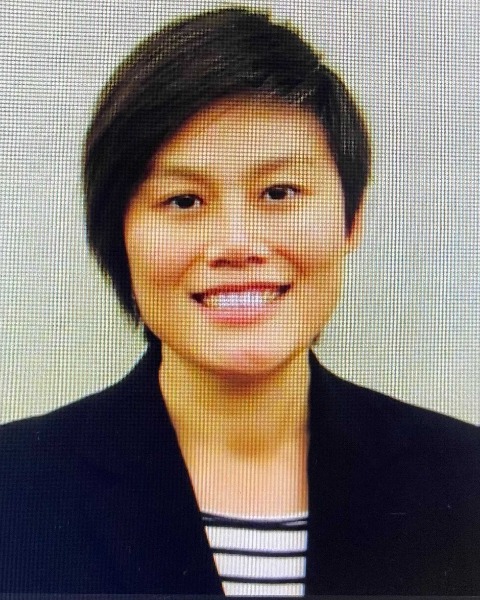
Feng Xu, PhD is a clinical genomic scientist with a focus on cancer R&D in the Division of Genomic Diagnostics at Children’s Hospital of Philadelphia (CHOP). She has been working on several cutting-edge research and developing projects for cancer genomic diagnostic tests at CHOP. She is experienced in genomic data analysis from her PhD training and work experiences. She is also skilled in next generation sequencing (NGS) technologies from being part of the validation team for Ion Torrent PGM and years of extensive user experiences with Illumina sequencers on multiple NGS projects.
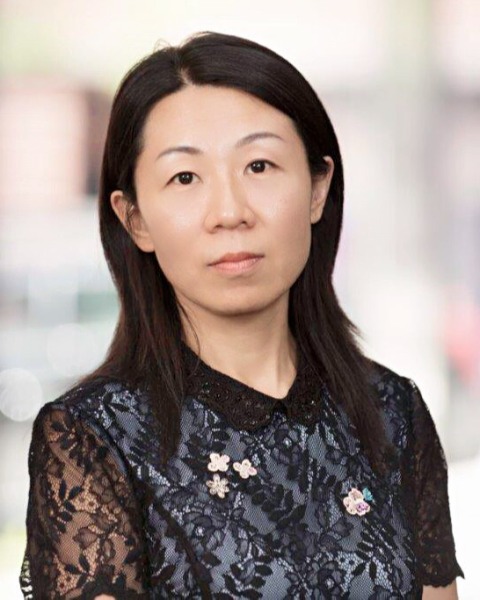
Jinjuan Yao, MD, PhD is a molecular pathologist from Memorial Slocan Kettering Cancer Center (MSK), with subspecialty training in molecular pathology and hematopathology. Dr. Yao also serves as the Quality Assurance Chair of Diagnostic Molecular Pathology at MSK. Dr. Yao is a lifetime member of Chinese American Pathologists Association (CAPA) and the chair for CAPA molecular pathology subcommittee. She is also a member of AMP and CAP. She is currently a CAP NY state house of delegates and CAP Personalized Health Care Committee (PHC) member. As a molecular pathologist, Dr. Yao has been focusing on the large scale, prospective clinical genotyping efforts based on a variety of NGS technologies as part of a center wide precision medicine initiative. She has been participated in validation of new platforms and in charge of the quality insurance and quality control of the laboratory operations. In the past 7 years of clinical practice, she has reviewed the genetic profiling of thousands of solid tumors and hematologic malignancies and gained the knowledge of guidelines and regulations of the application of molecular testing in targeted and immunotherapies. Dr. Yao has numerous publications and has been invited to give over more than 30 talks/webinars on molecular pathology.
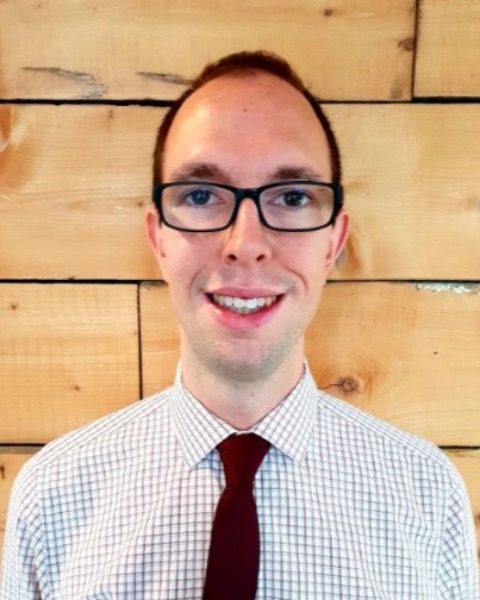
Paul Zamiara, MD, BSc (Hons), Originally from Toronto, Ontario, Dr. Zamiara completed his Honors BSc at the University of Toronto before obtaining an MD from the University of Western Ontario (London, Ontario). He is currently in his senior year of Anatomical Pathology residency at Dalhousie University (Halifax, Nova Scotia) and is eagerly anticipating moving across the continent for pediatric and perinatal pathology fellowship at Children's Hospital Los Angeles / University of Southern California. He firmly believes that with continued advances in our understanding of the molecular underpinnings of various cancers, the delivery of personalized medicine will become ever more important in the treatment of pediatric neoplasia. As such, he plans to utilize the resources available through CHLA's Center for Personalized Medicine to add a molecular focus to his fellowship training. Outside the hospital, he can usually be found spending time with his partner, Aimee, and their adorable retired greyhound, Zoe.
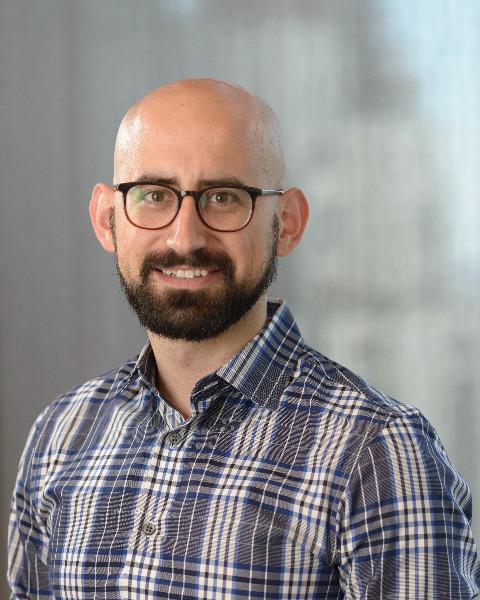
Ahmet Zehir, PhD is the Director of Clinical Bioinformatics in Molecular Diagnostics Service and Assistant Attenting in Department of Pathology at Memorial Sloan Kettering Cancer Center where he overses the development of analysis pipelines and software applications for next-generation sequencing (NGS) based clinical assays. He recieved his PhD from Tulane University and was a postdoctoral fellow at MSKCC. He played a major role in development, clinical validation of and obtaining FDA clearance for several NGS assays (MSK-IMPACT, MSK-ACCESS) for solid tumor, hematological malignancy and circulating tumor DNA testing. He led the development of informatics tools that expand the information obtained from NGS data such as mutational burden or MSI status. His research has focused on identification and characterization of clonal hematopiesis (CH) in solid tumor patients and mechanisms of CH dynamics in patients. He currently serves on the College of American Pathologists (CAP) Molecular Oncology Committee.
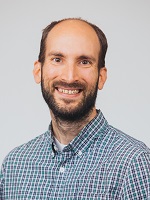
Justin M. Zook, PhD leads the Human Genomics Team at the National Institute of Standards and Technology and is co-leading the Genome in a Bottle Consortium's work developing authoritatively characterized human genomes to benchmark sequencing methods. He developed methods to compare and integrate whole genome DNA sequencing data from multiple platforms and sequencing runs to characterize the first whole human genome Reference Materials. He is now leading the GIAB Analysis Team work combining short, linked, and long read sequencing technologies to characterize structural variation and challenging regions of the genome. He co-leads the variants team in the Telomere-to-Telomere Consortium demonstrating the utility of the first complete human genome. He was an Informatics Representative to the Association for Molecular Pathology Clinical Practice Committee, and he chaired the Global Alliance for Genomics and Health Benchmarking Team, which published best practices for benchmarking genome sequencing results in 2019.